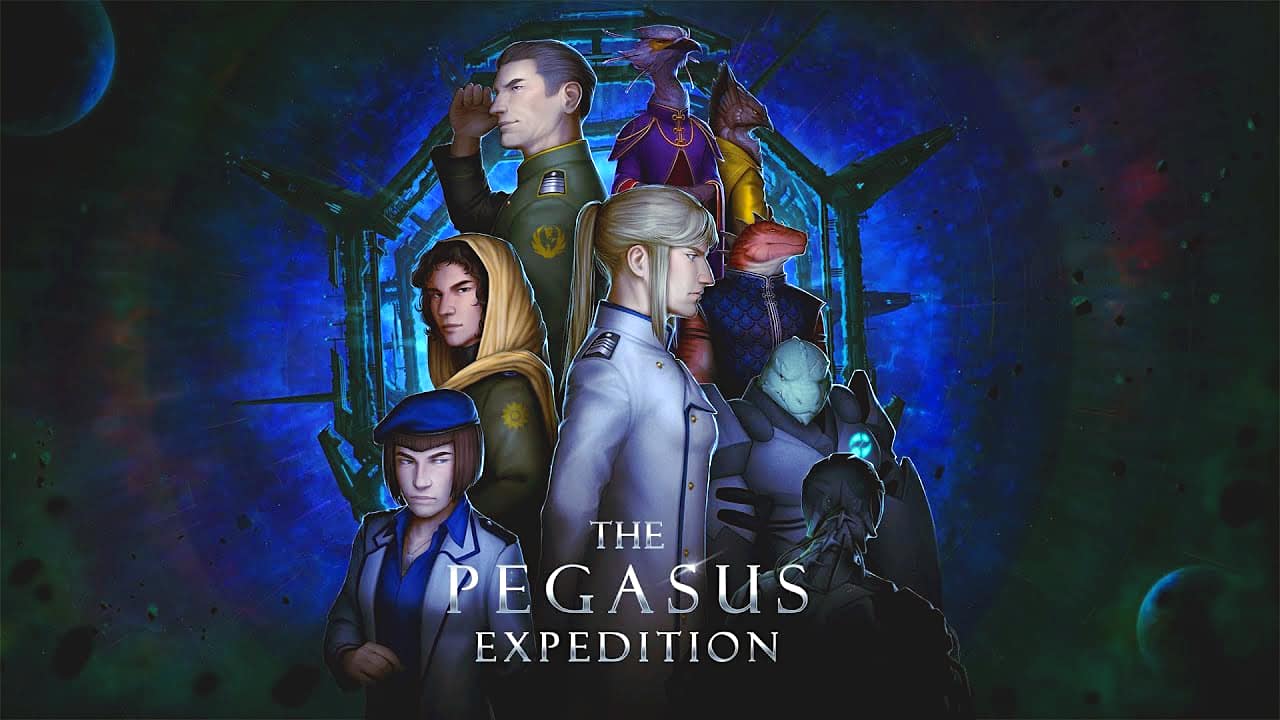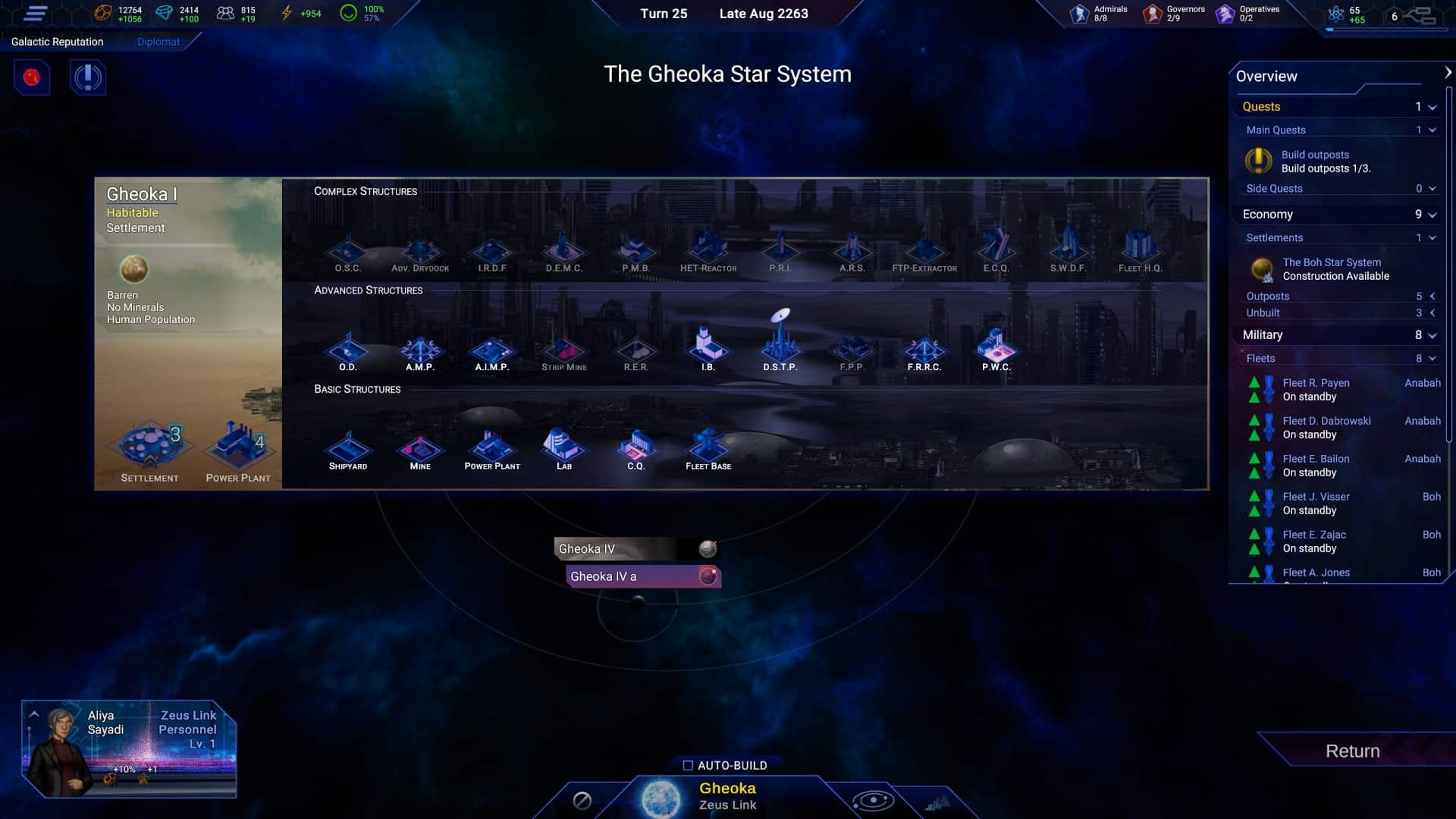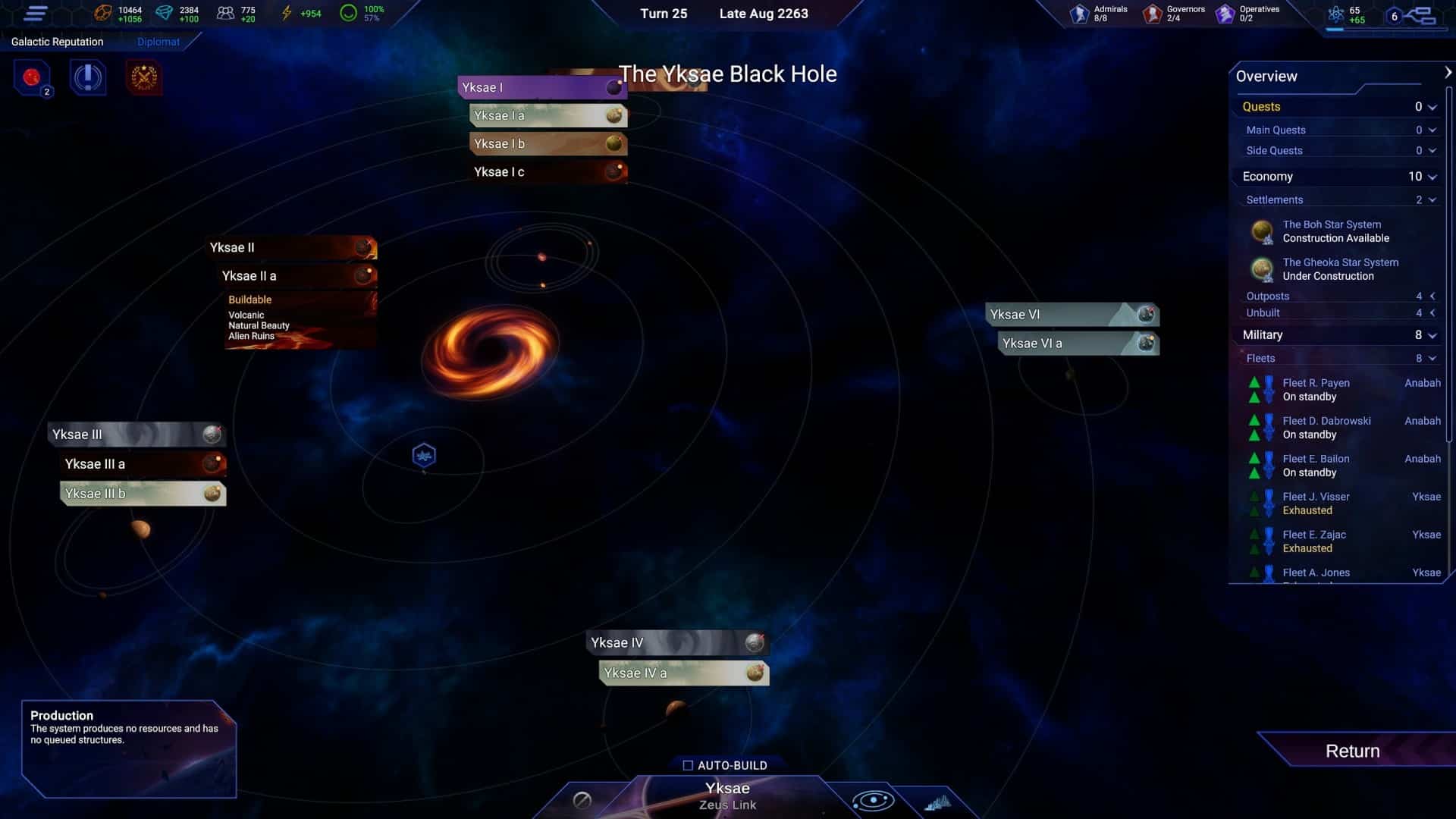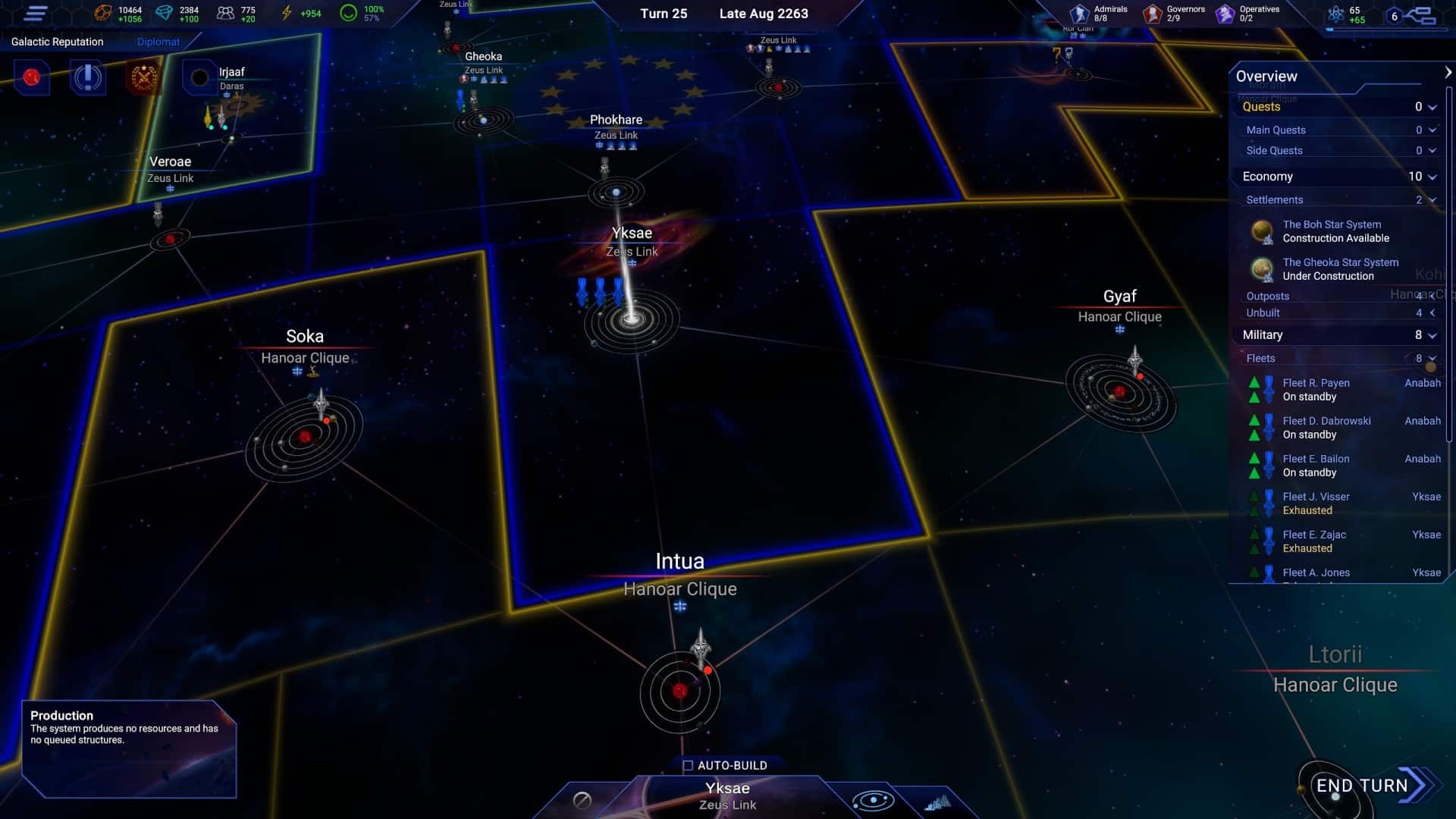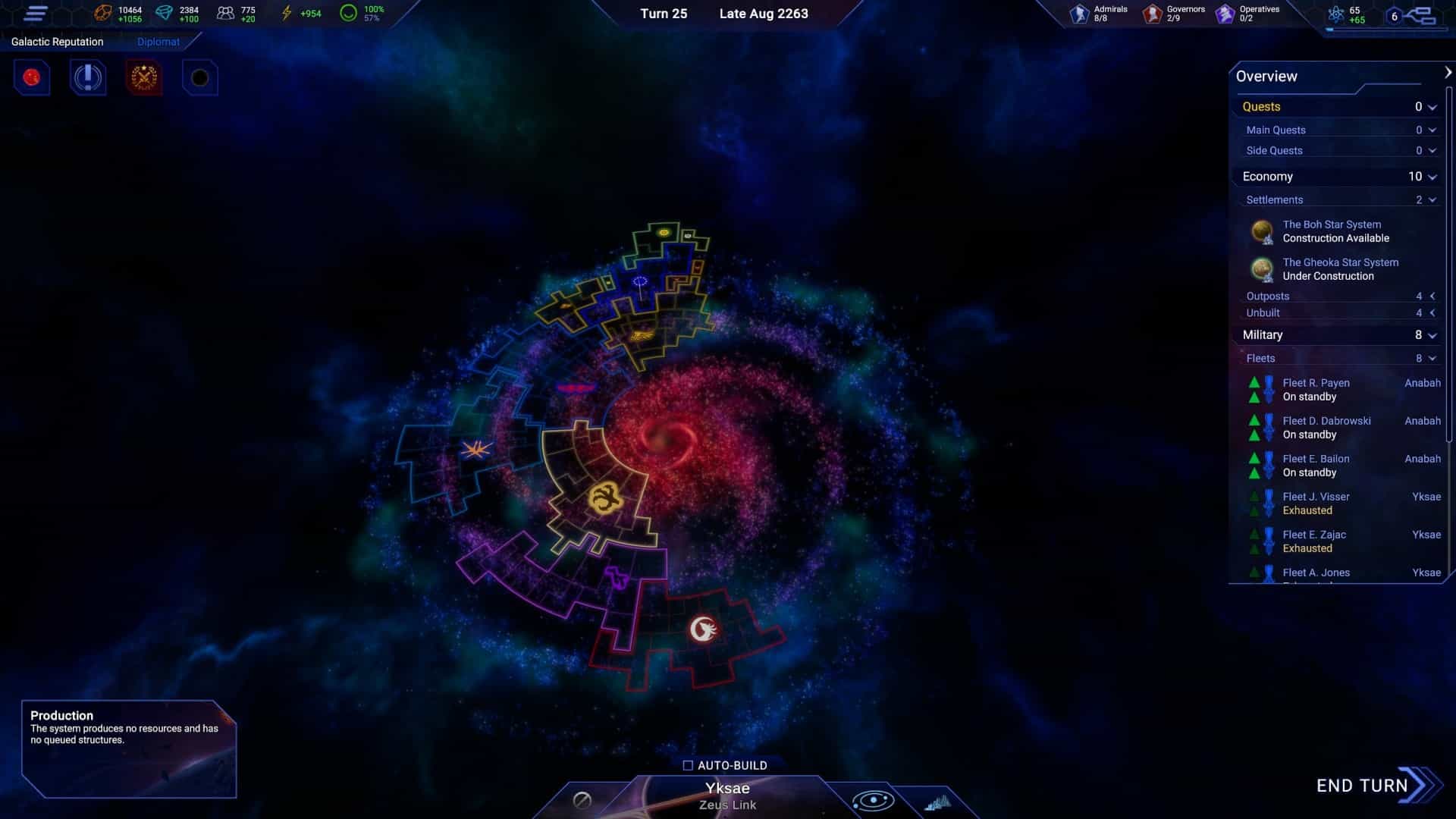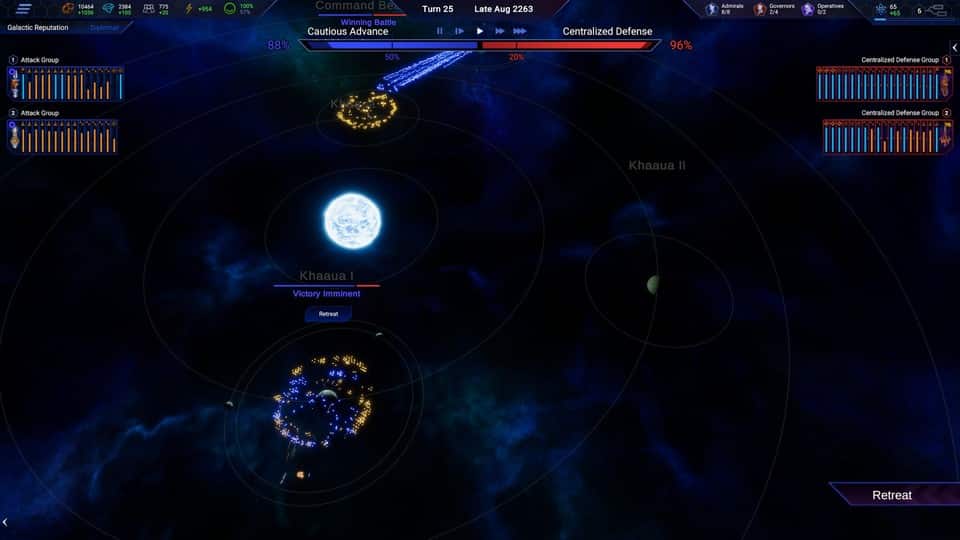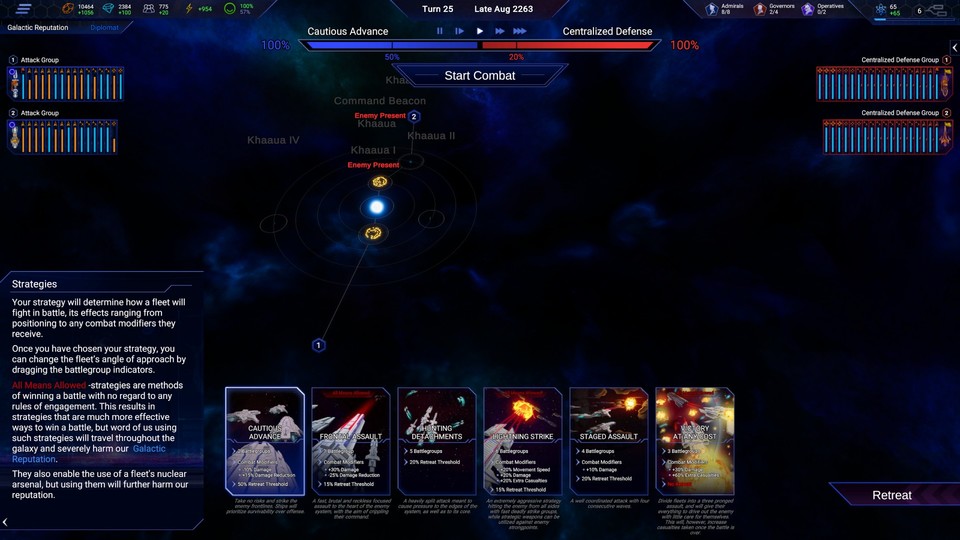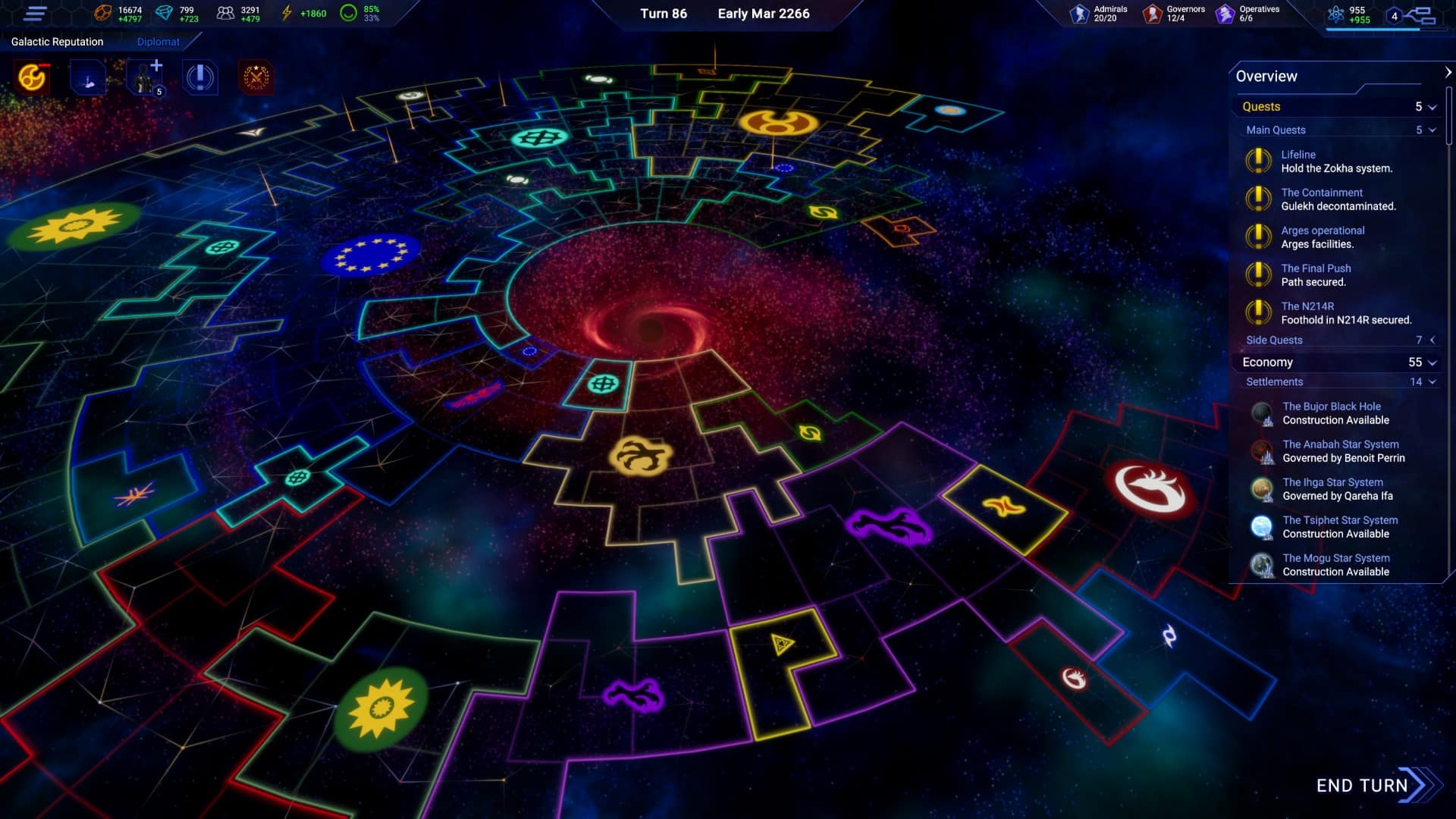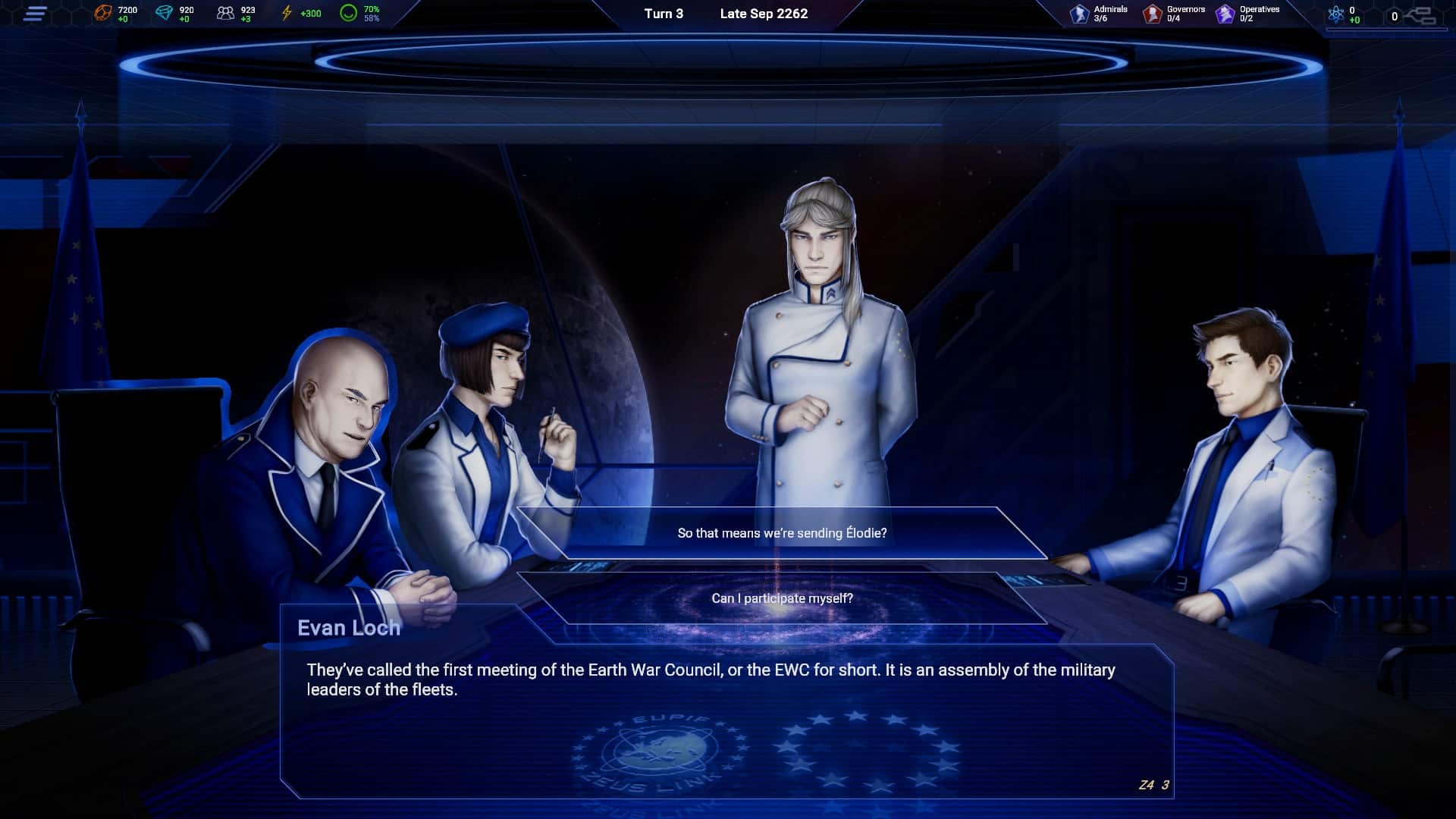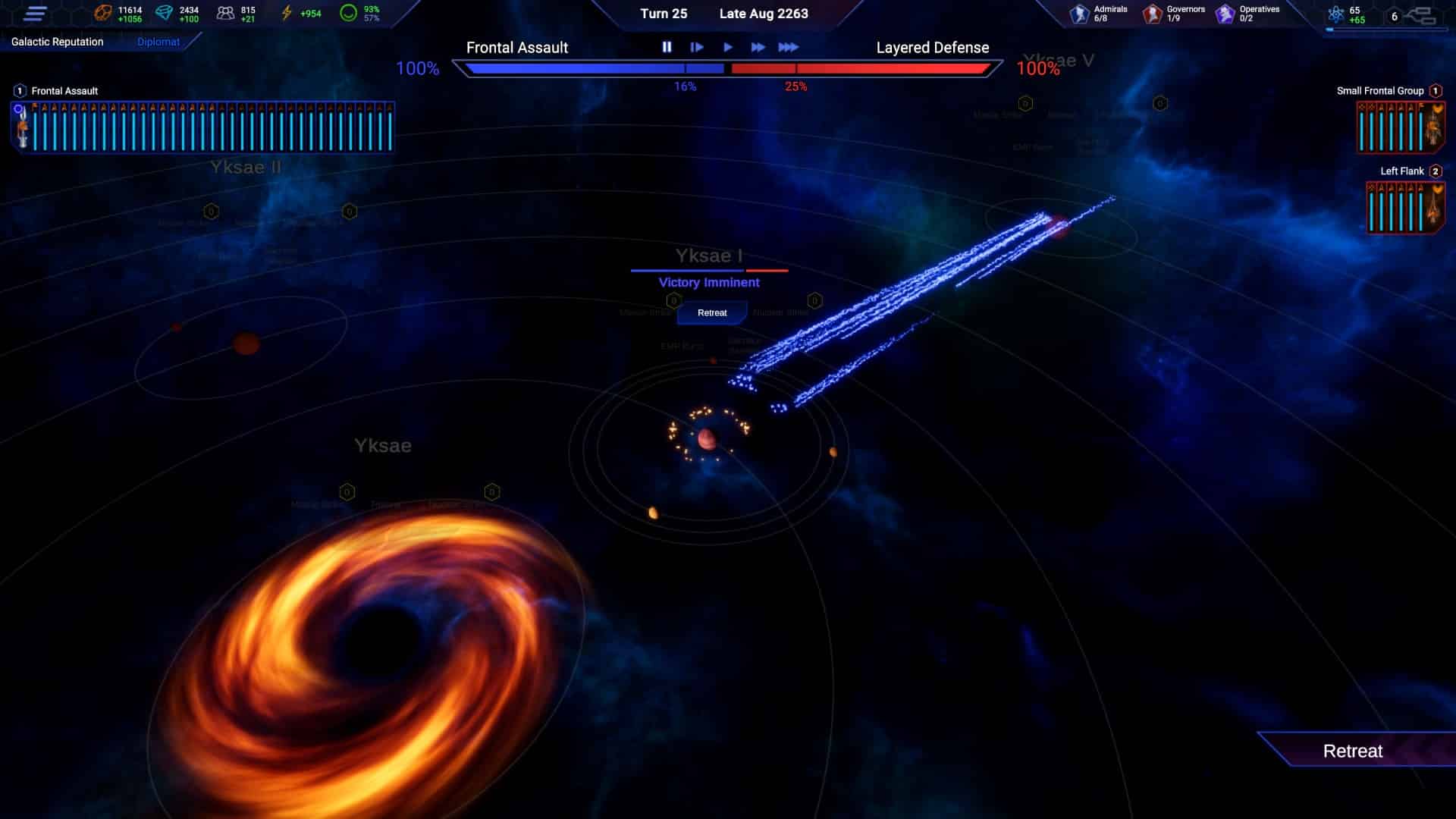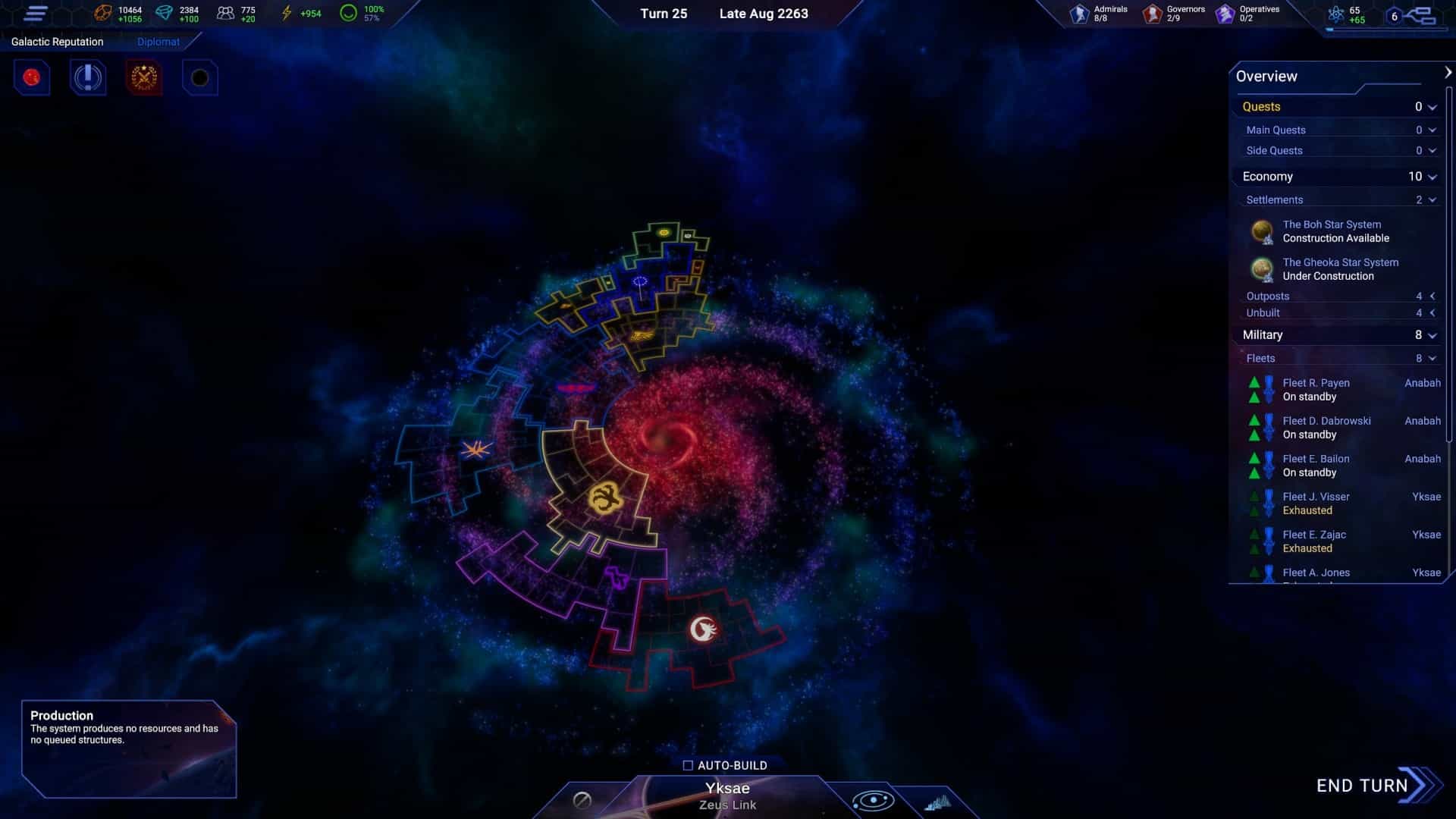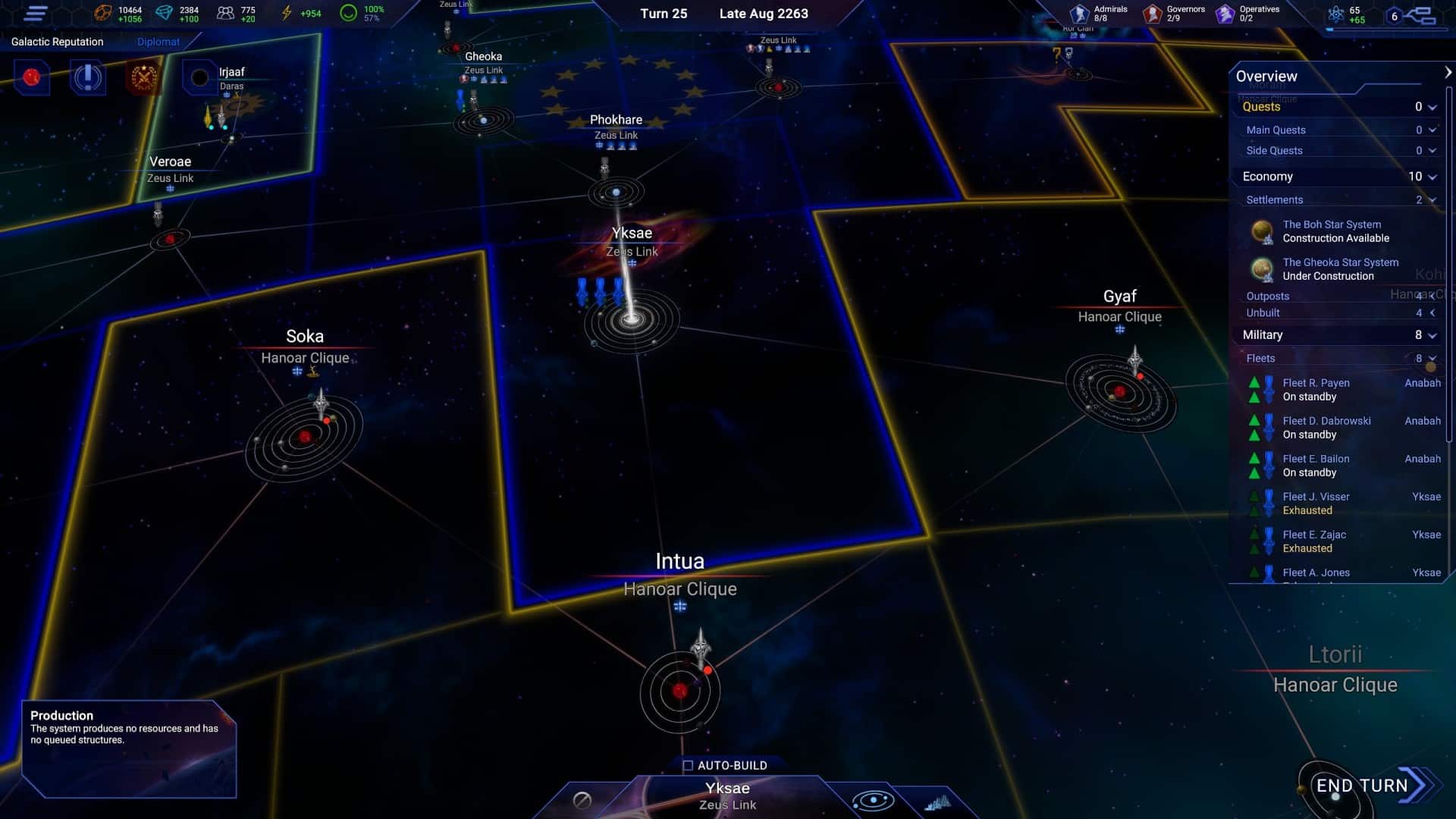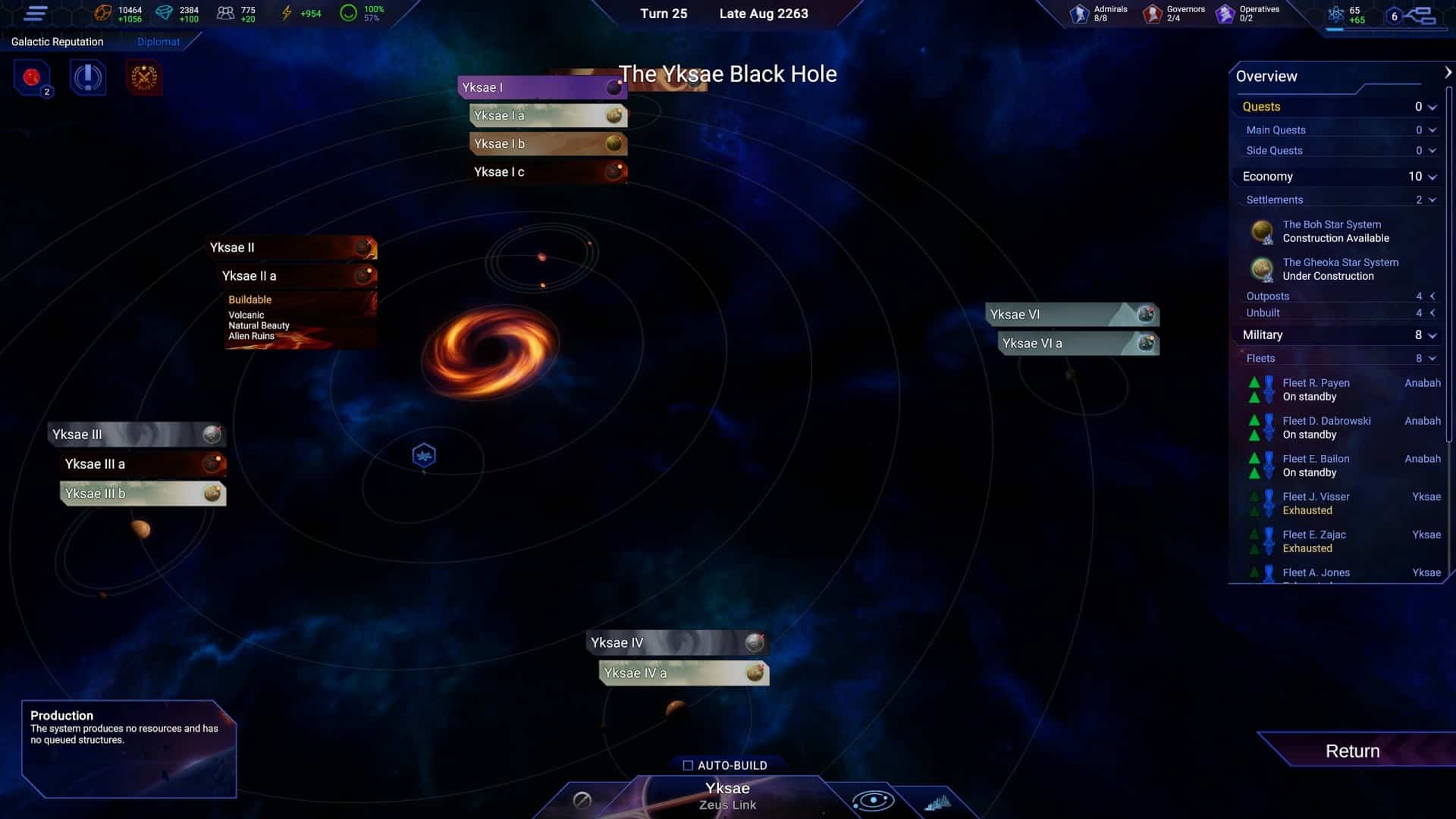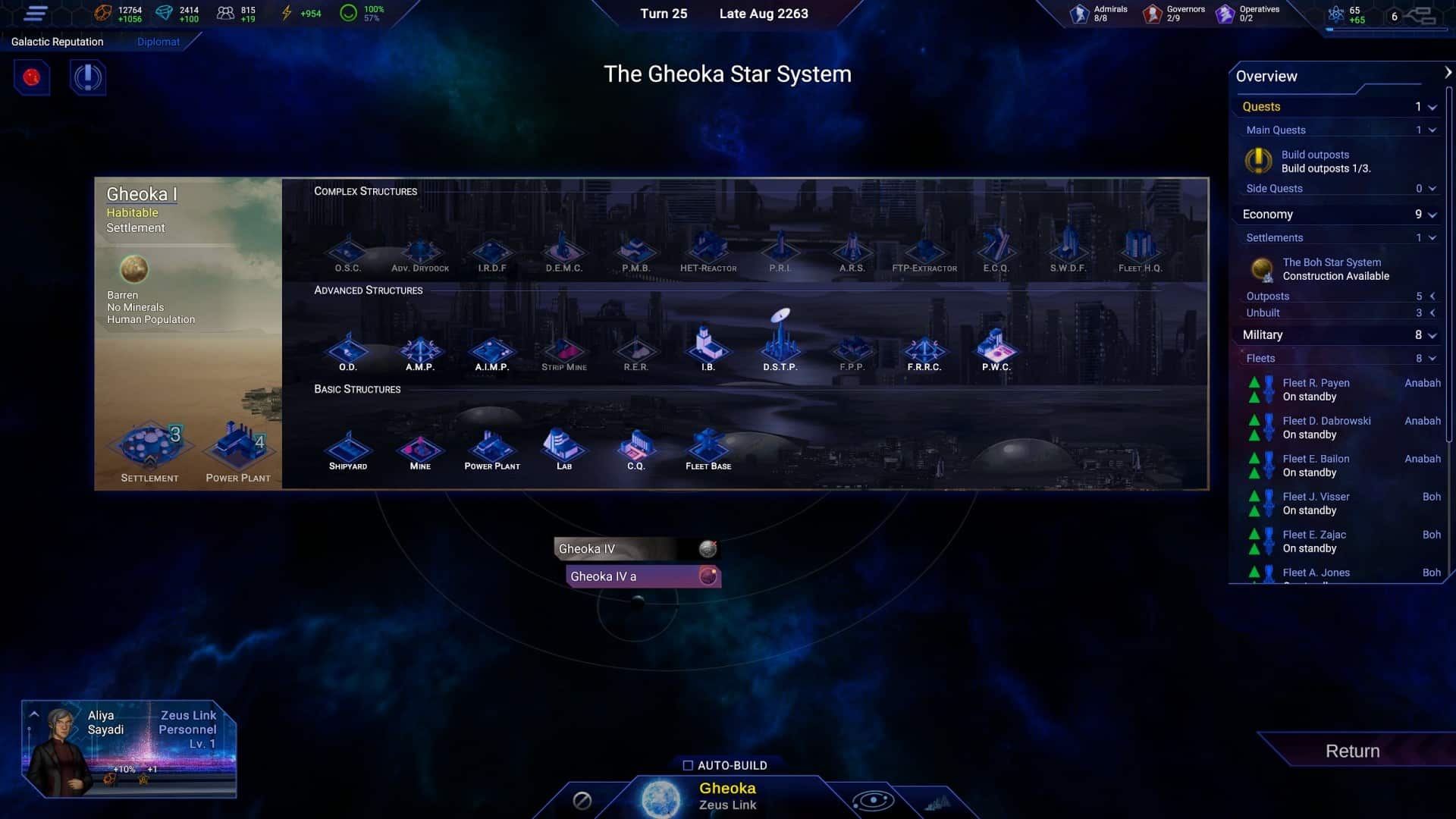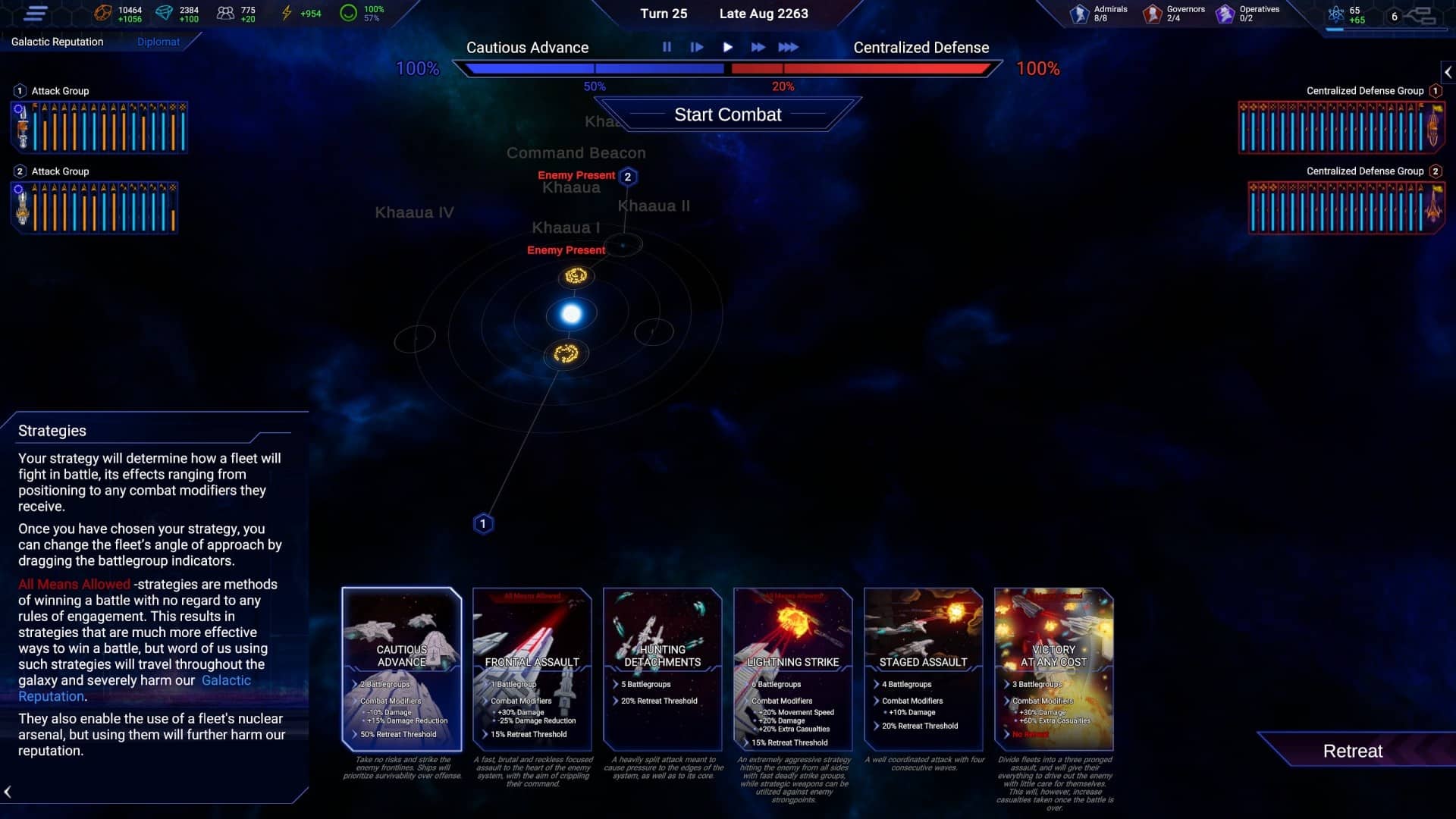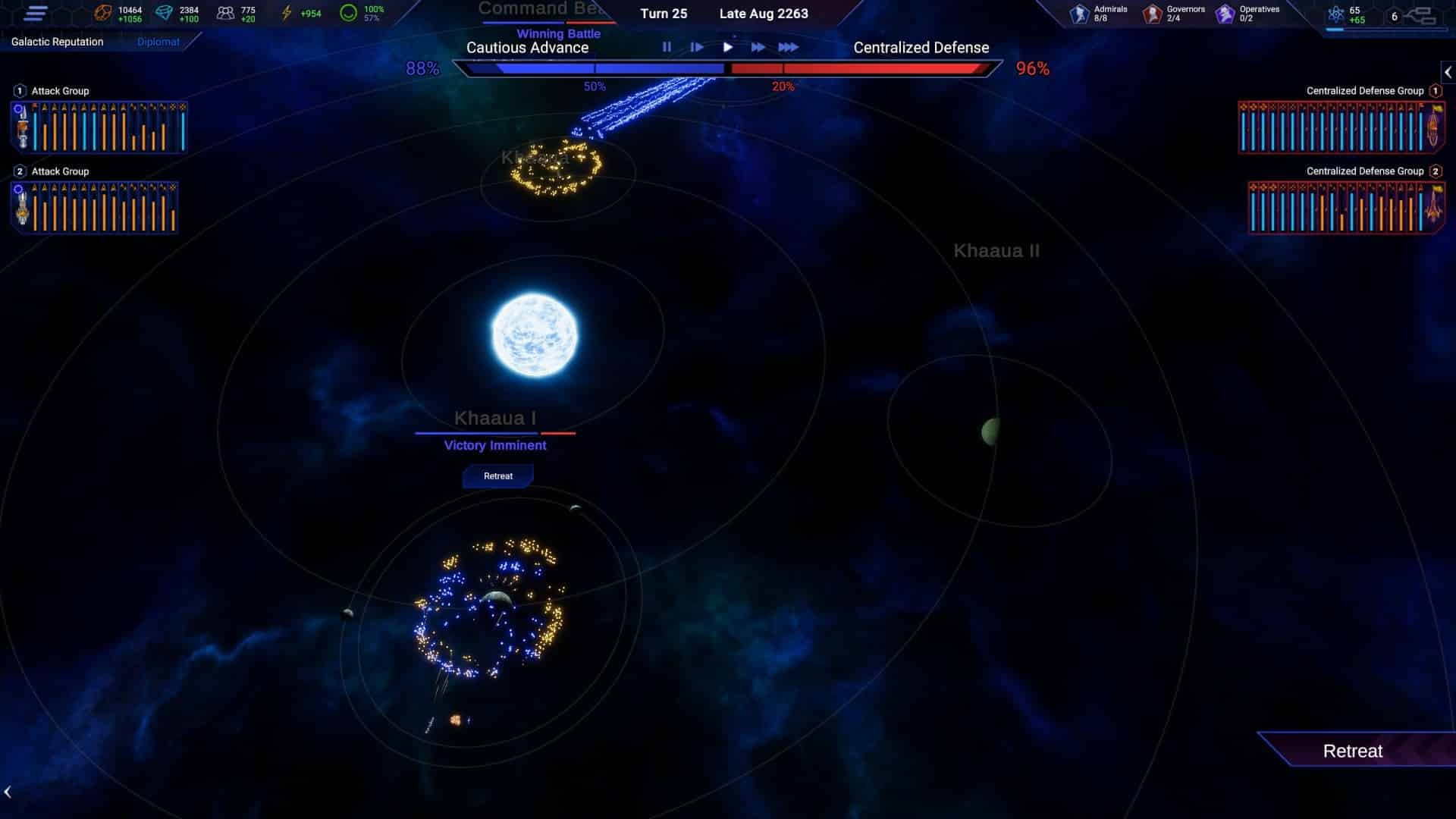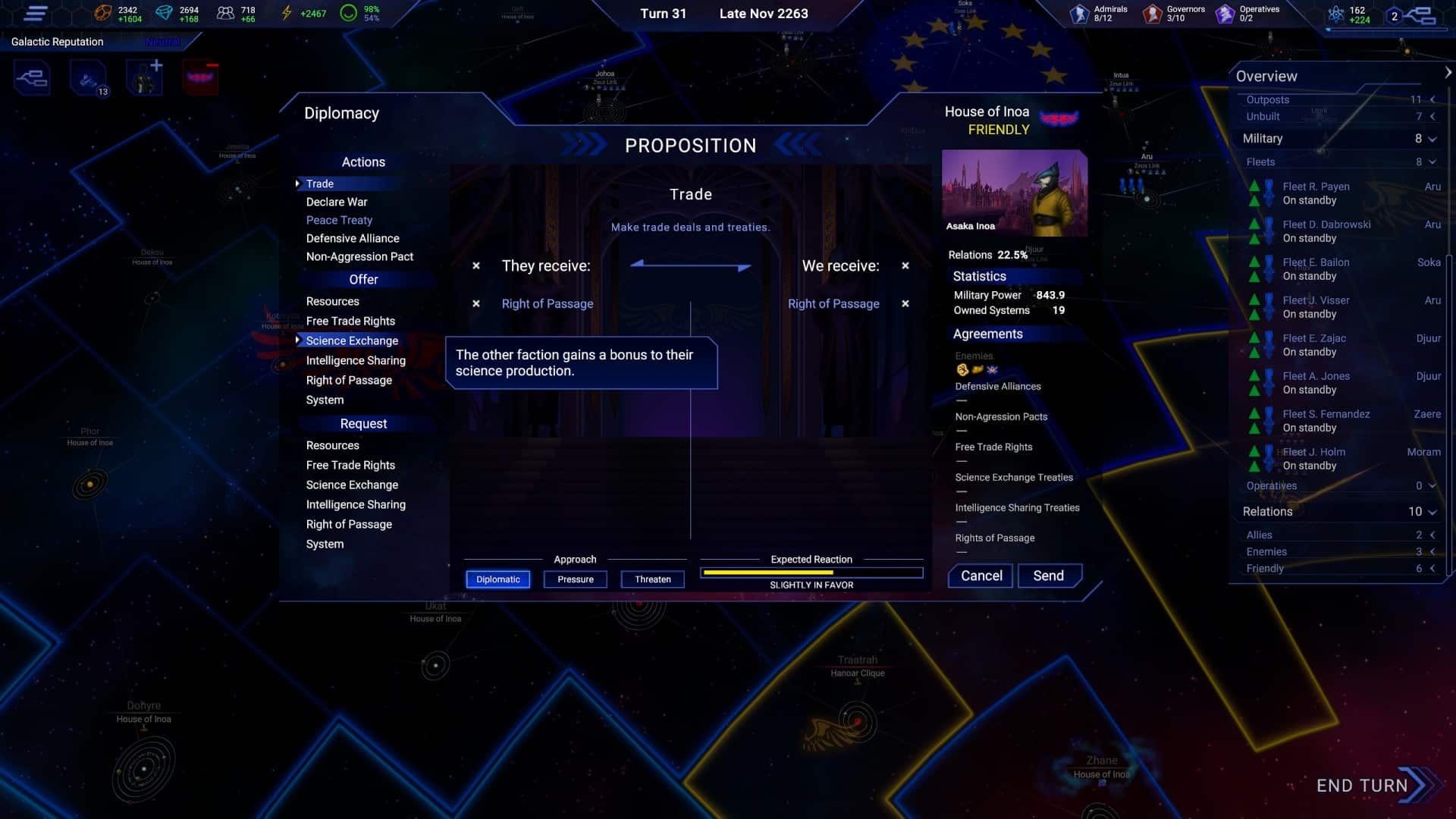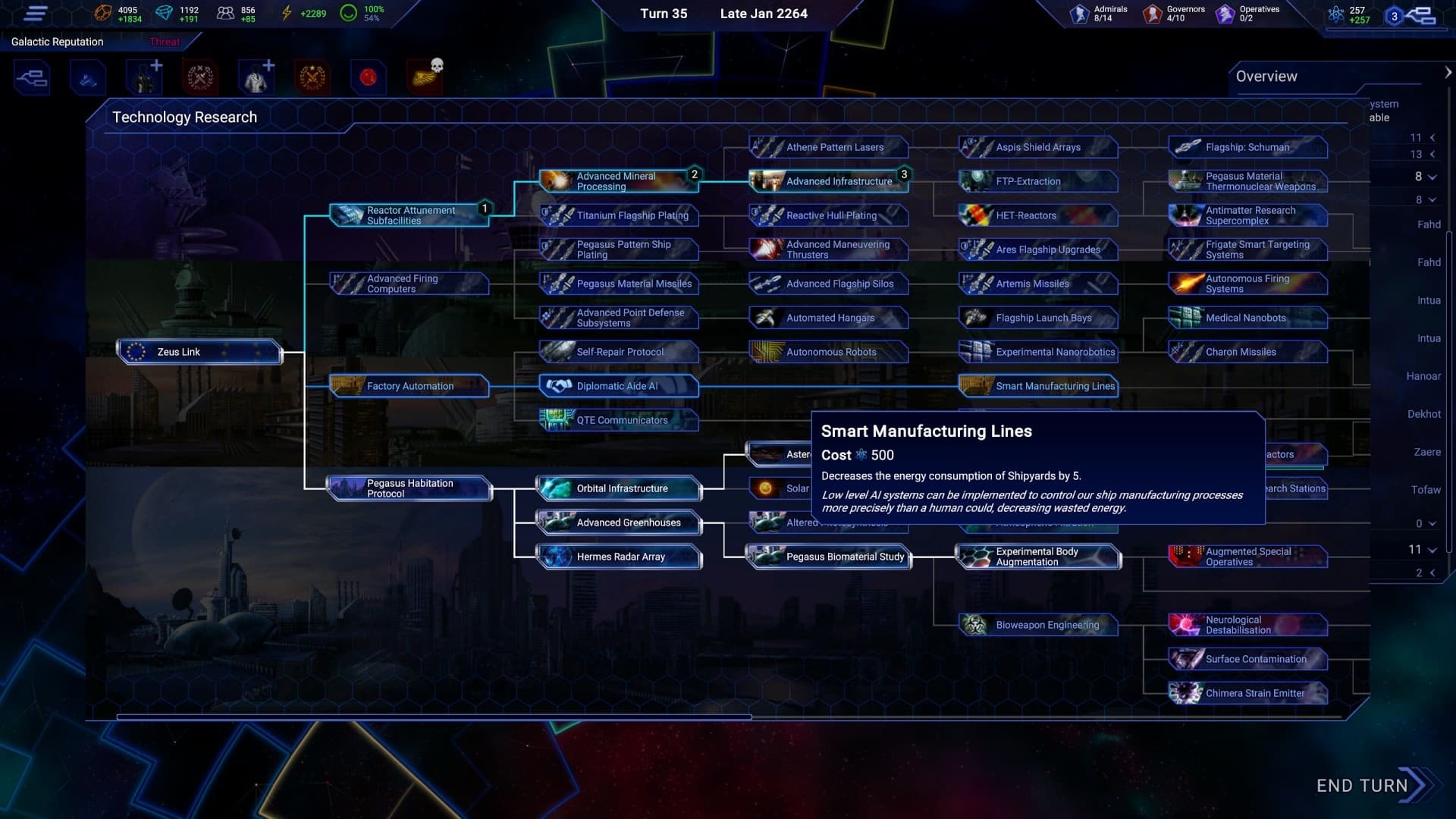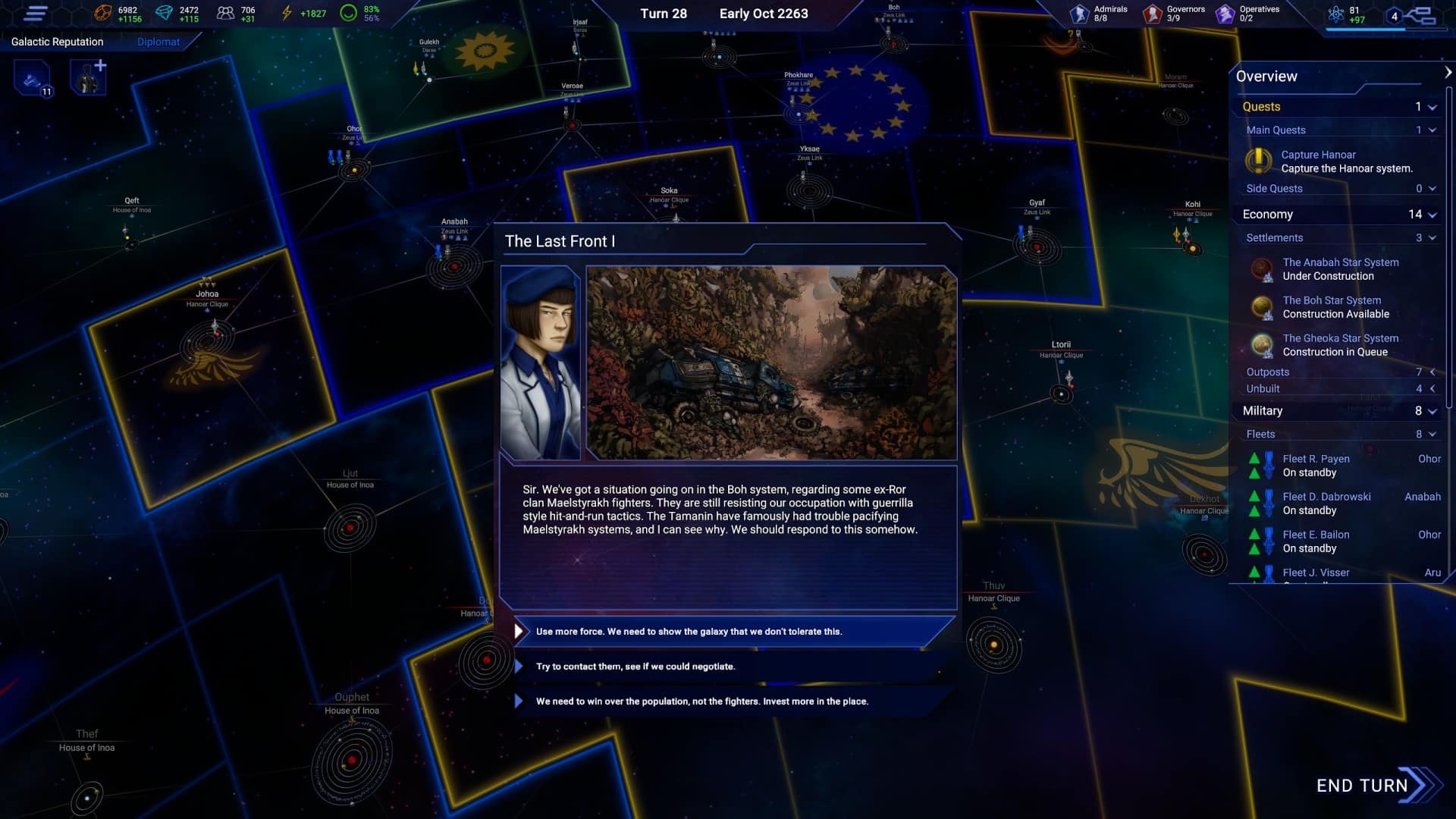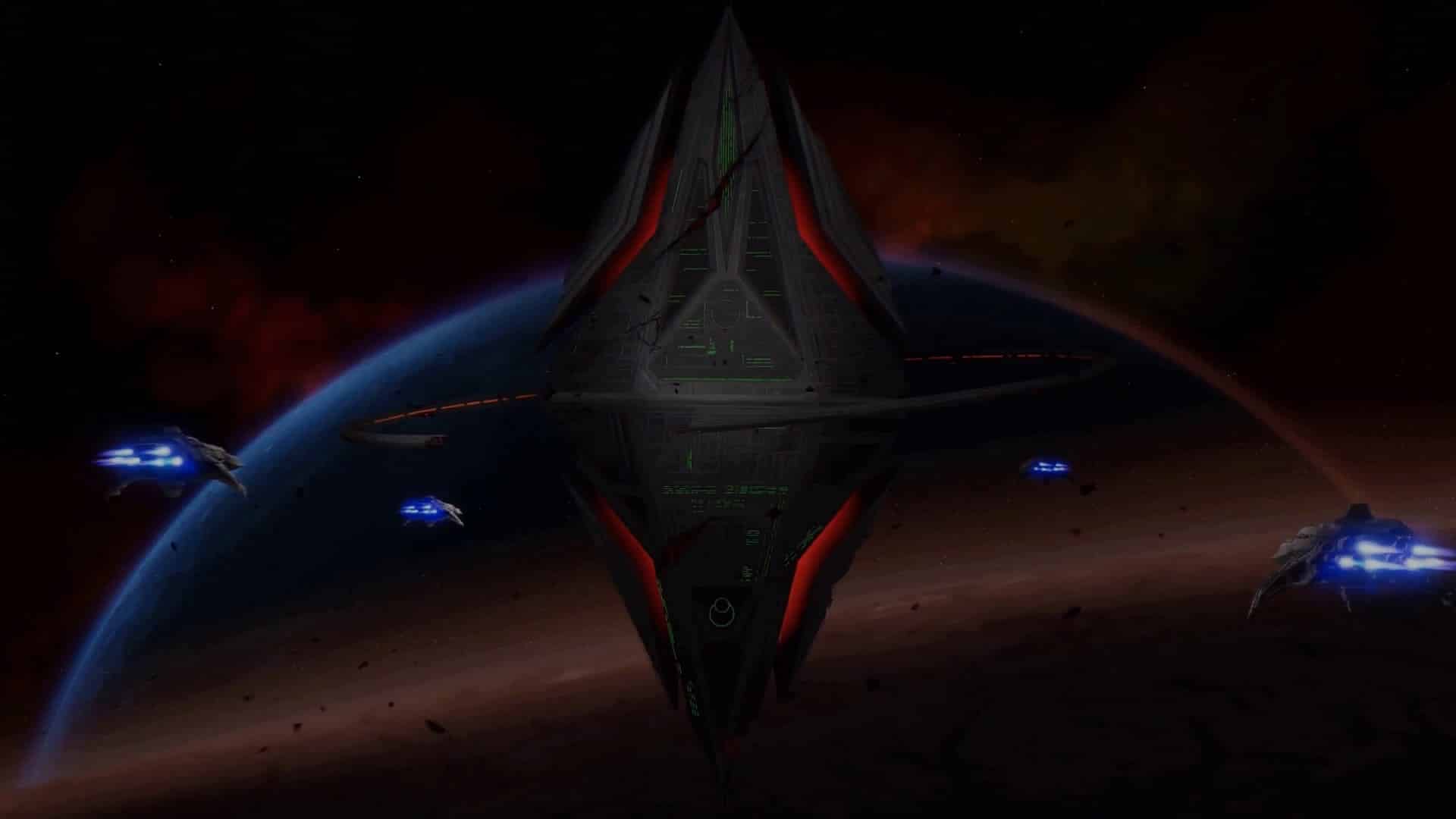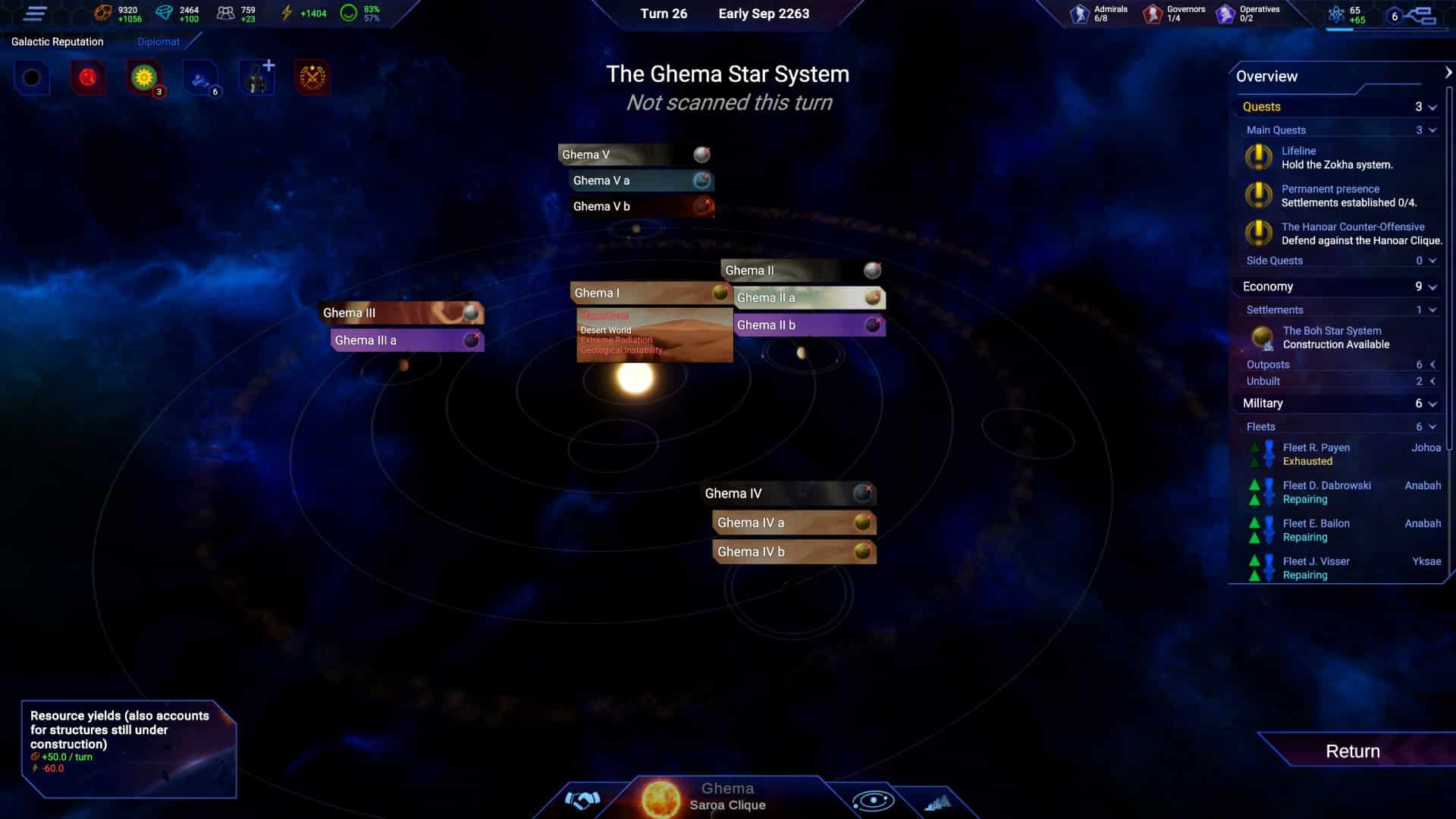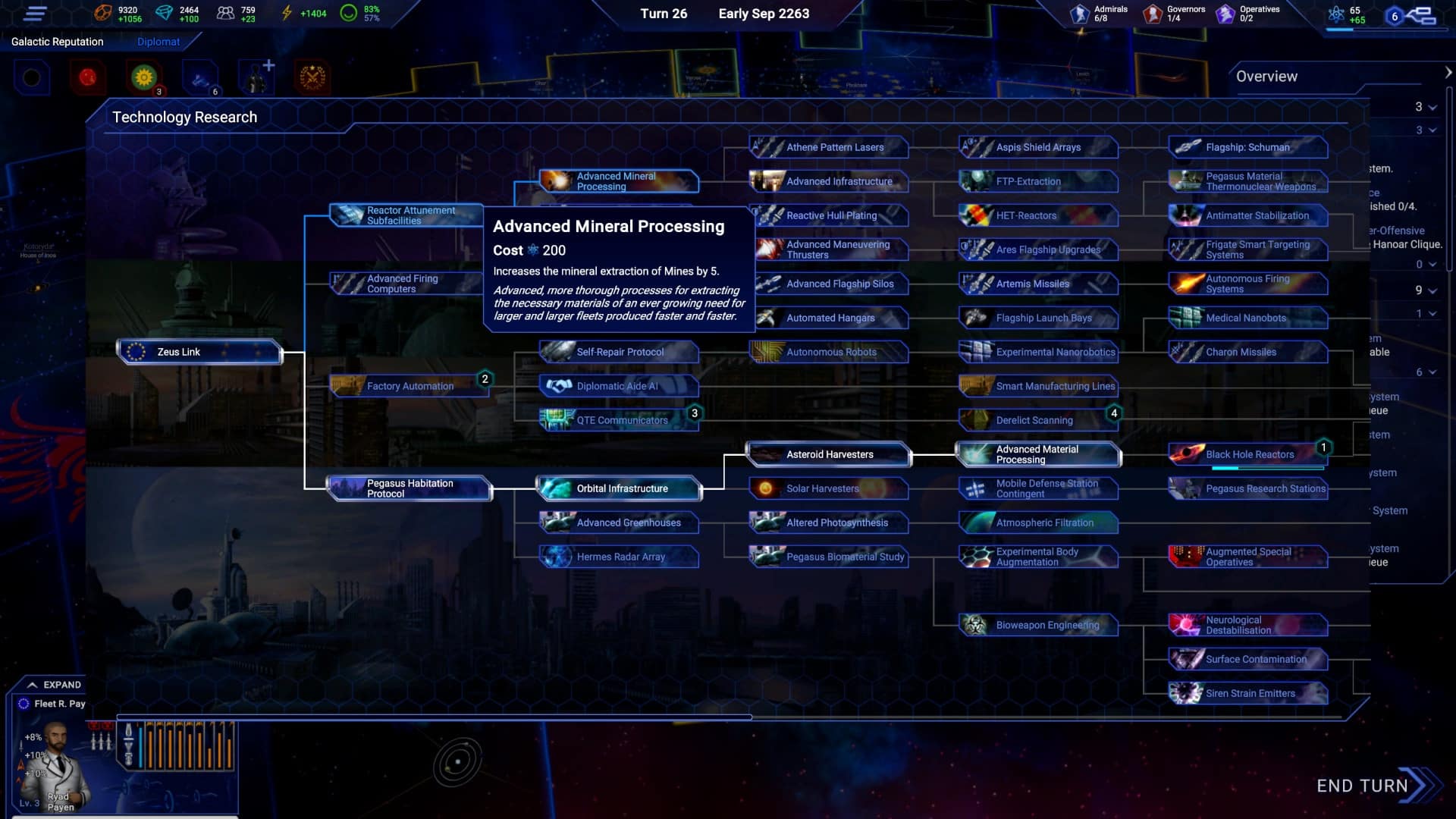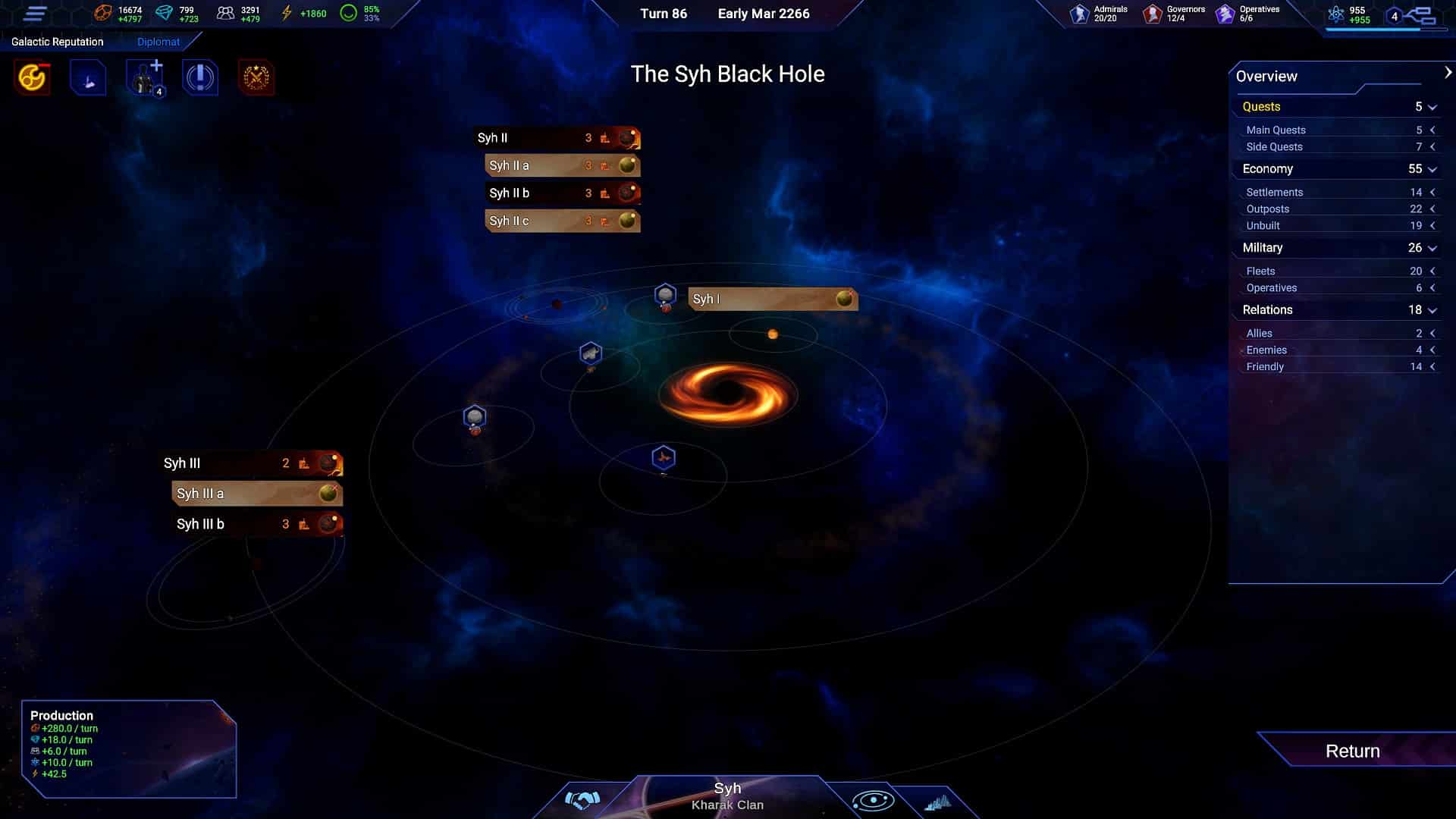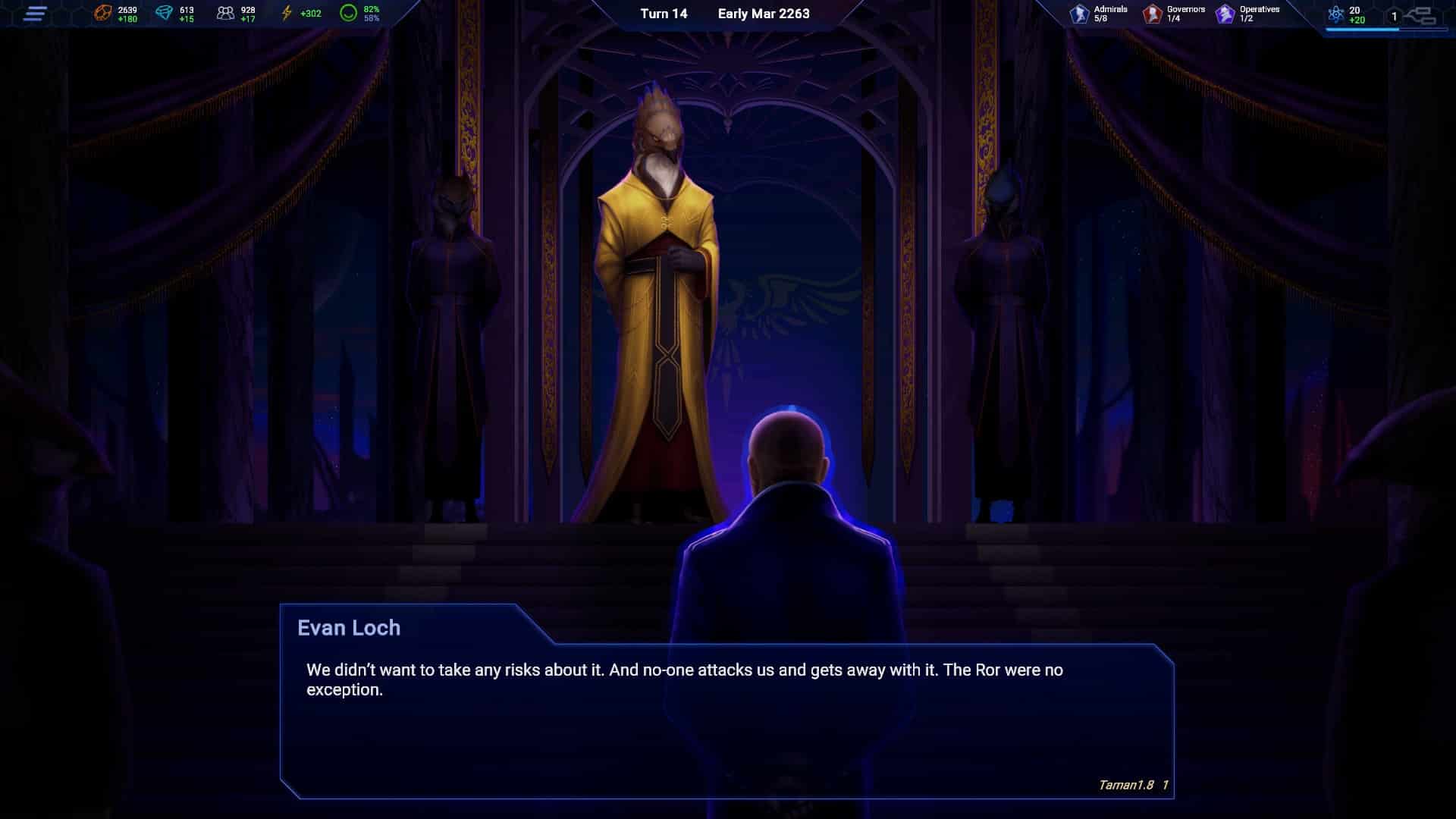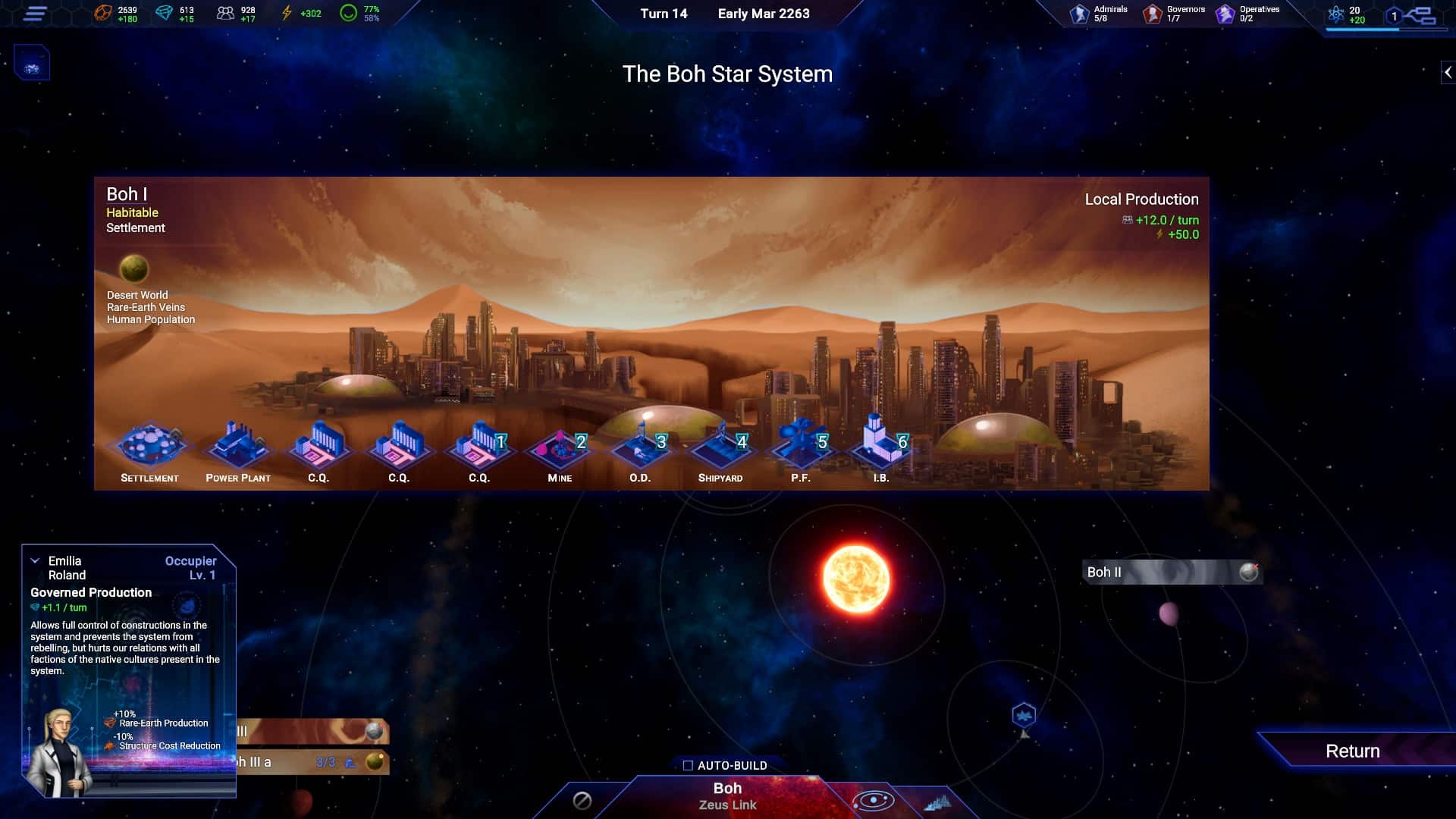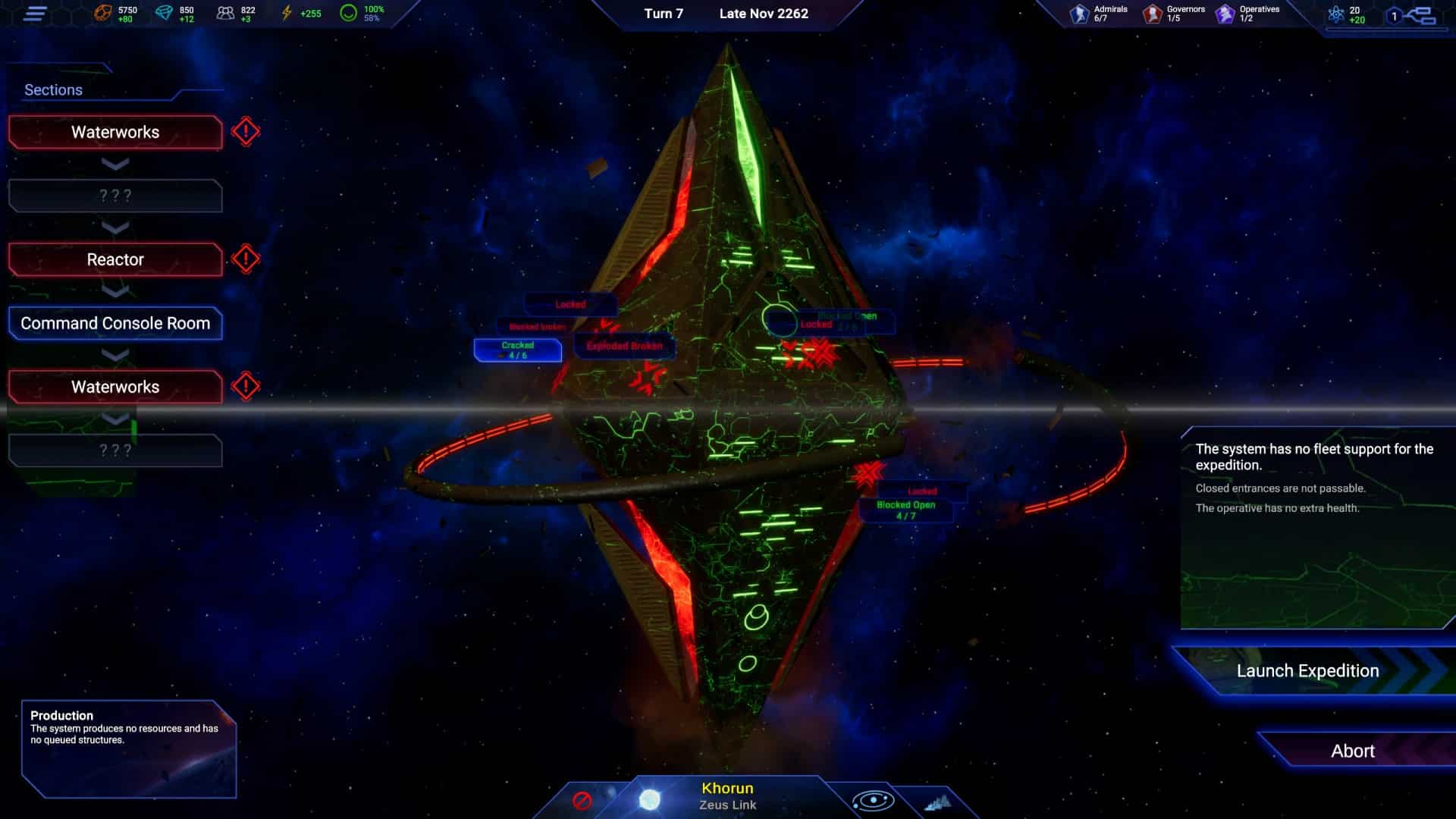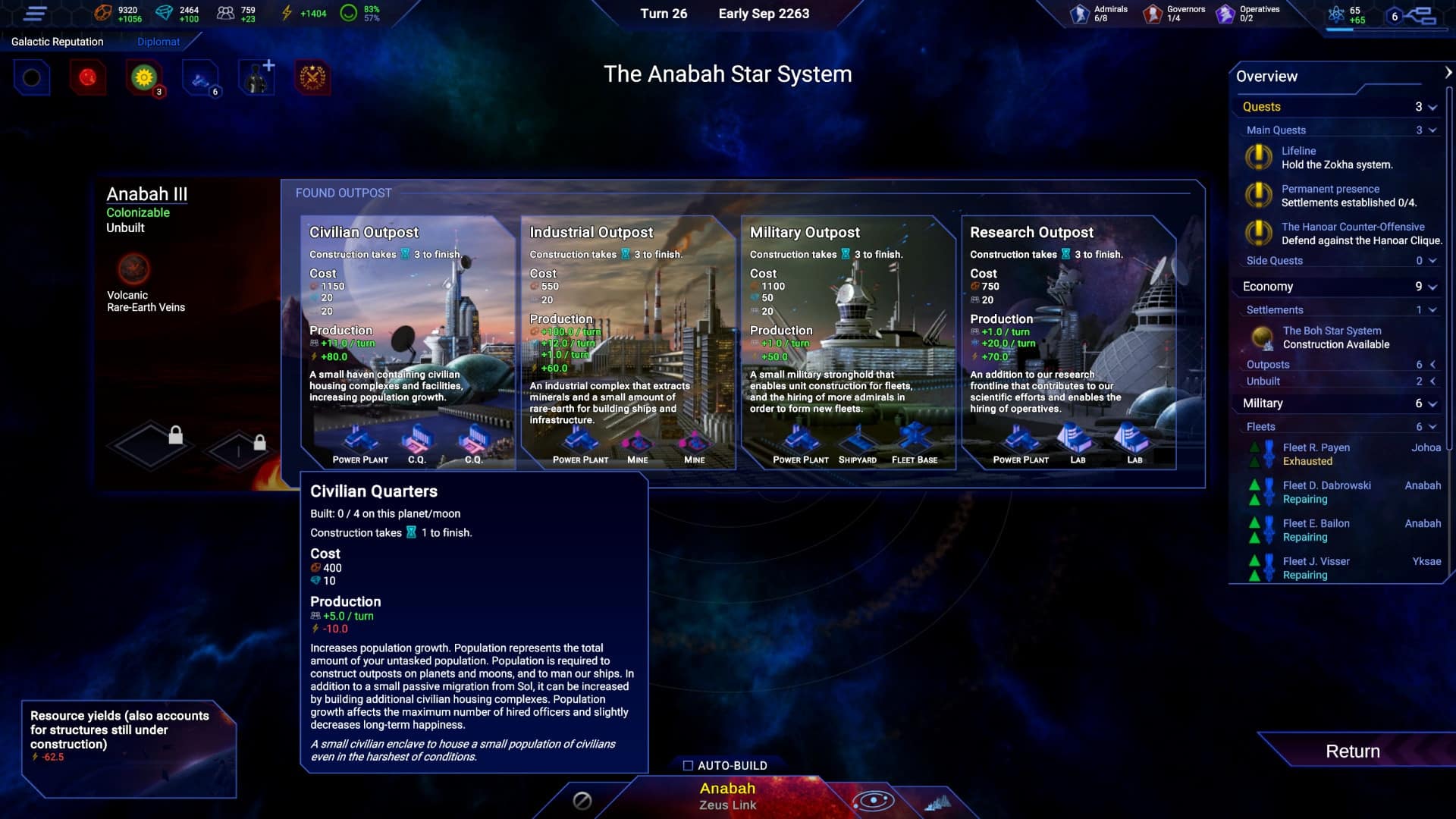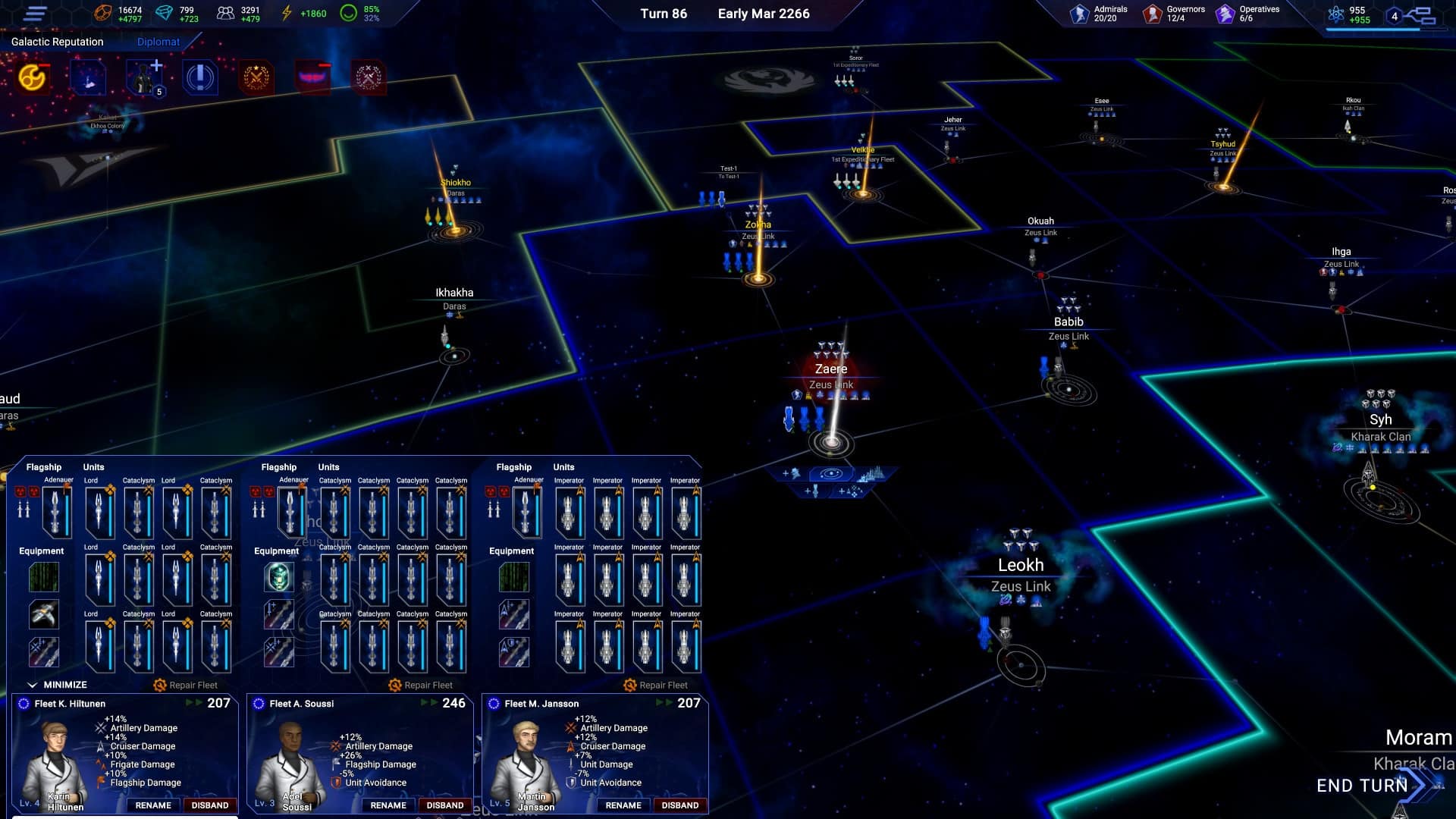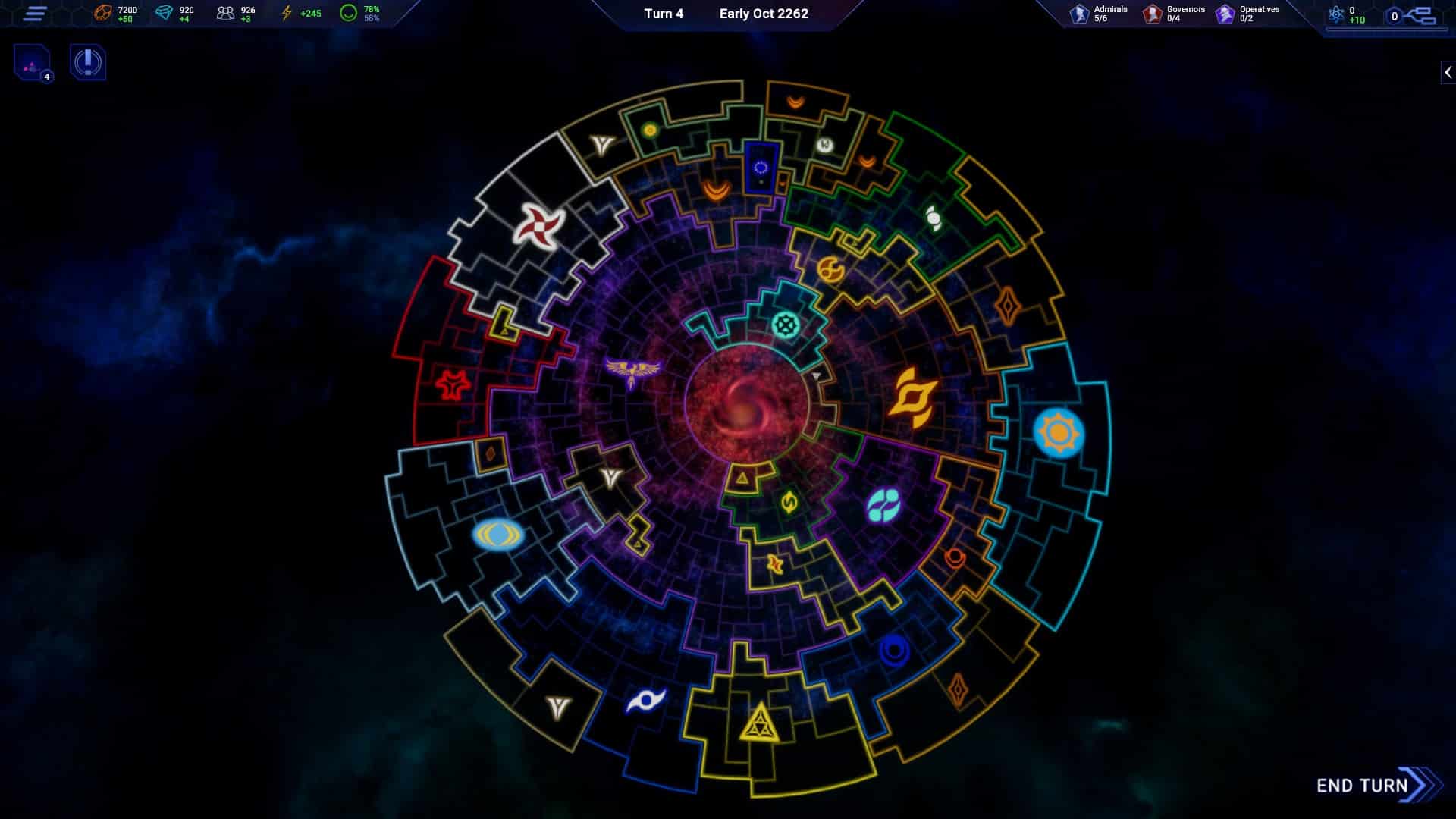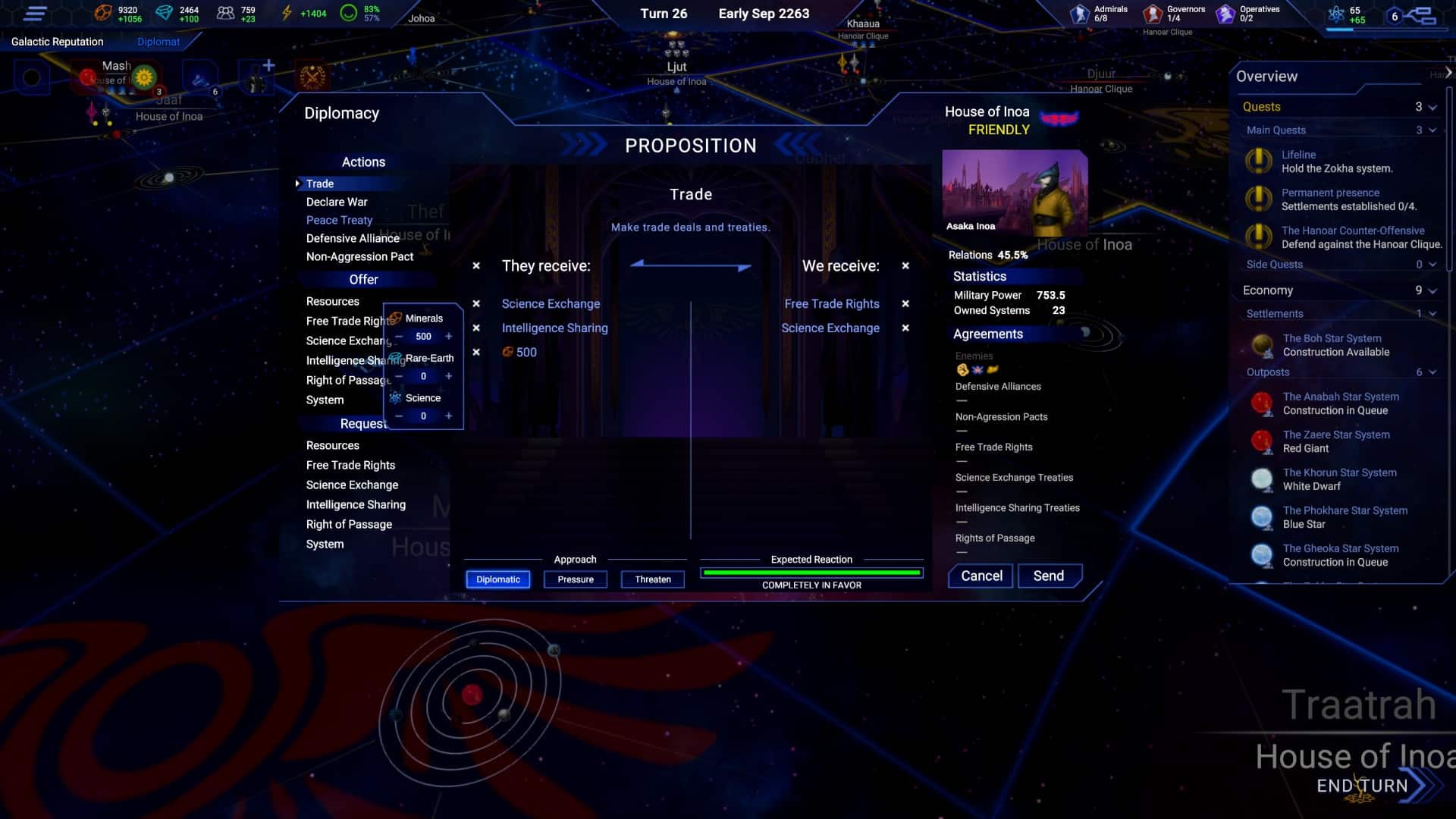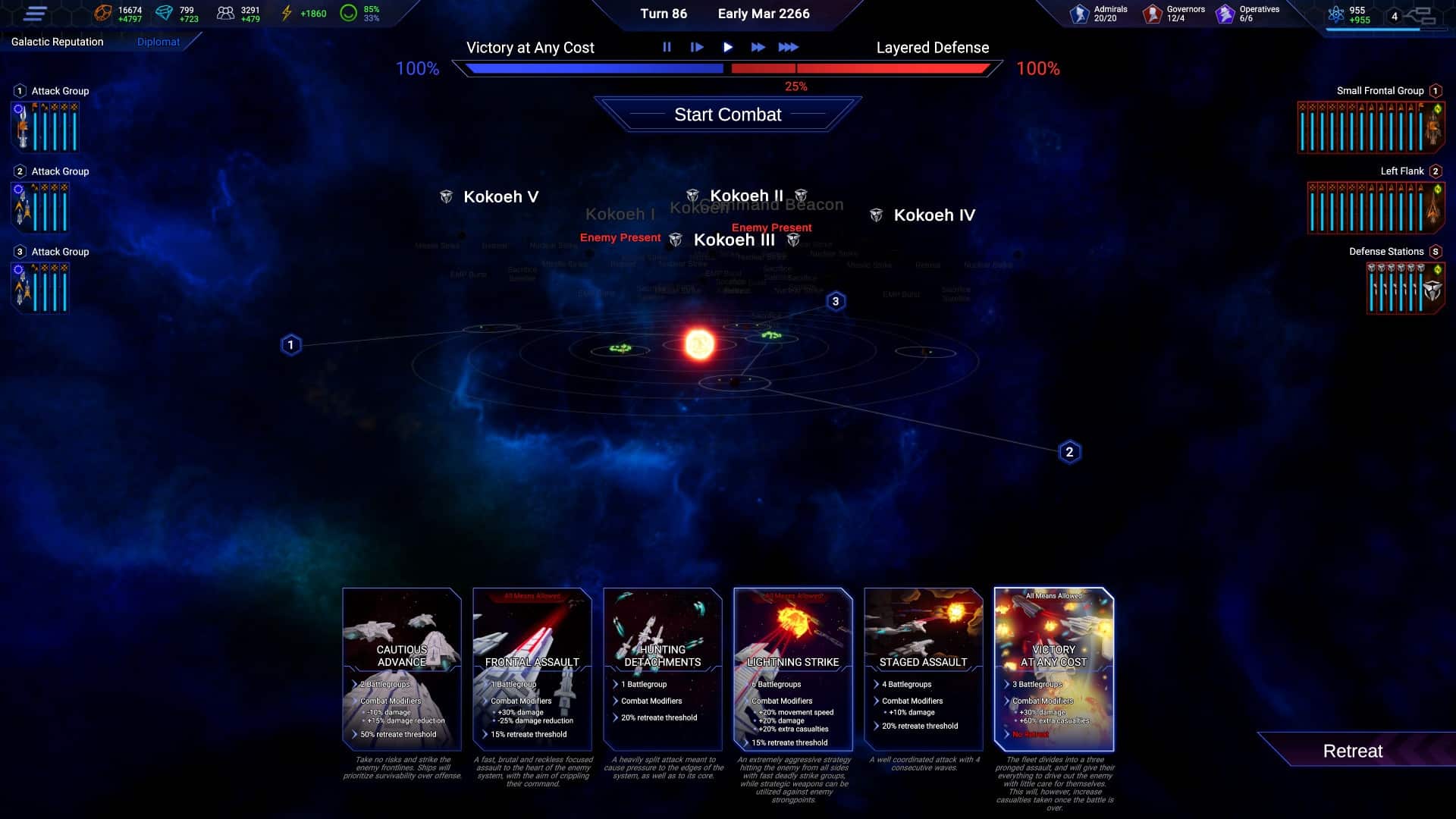This new global strategy game is reminiscent of Stellaris, but is turn-based and has a cohesive storyline.
When I read “Pegasus Galaxy”, I immediately think of “Stargate Atlantis”, one of my absolute favourite series. The spin-off to “Stargate SG-1” revolves around an expedition from Earth that lands in the Pegasus Galaxy and has to fight the life-sucking Wraith there with the help of precursor technology.
Table of Contents
All we want is a little space …
The frame story of The Pegasus Expedition starts with a major threat that forces humanity to flee. The Pegasus Galaxy is supposed to be the saving haven. But contrary to all assumptions, the galaxy is not empty.
Alien empires dominate the star systems and do not welcome humans. War ensues, which spreads to the entire galaxy. The demo also hints at ancient technologies and structures, so you can assume that some kind of precursor civilisation will play an important role.
.. and the planet thing was an accident!
Temporally, the prefabricated game state sets in the phase after the accidental, complete destruction of a planet, which led to the dissolution of the Tamanin empire that had prevailed until then. In the politically chaotic period that follows, it is your task to consolidate the power of the Earth expedition. To do this, you have several fleets at the ready, so you are already in a slightly more advanced part of the story campaign.

The plot is told through graphically enhanced dialogue screens where you meet the main protagonists of the Earth Fleet, who all have their own views on what is happening. You often have answer options, which are supposed to have different consequences. However, this could not be verified so far, only the description on the Steam page claims it.
4B: Settle, Build, Boom, Pillage
During each turn, you can now, as you are used to in 4X games, take care of the colonisation of new moons and planets, strengthen the economy and research with new buildings, engage in diplomacy with the other empires of the galaxy or send fleets into battle.
Each solar system represents its own sector on the map and is connected to the surrounding systems via hyperlanes. If climatic conditions allow, you can build outposts, settlements or colonies on moons and planets.
The stars of each solar system also have special characteristics. For example, volcanic planets are more suitable for mining outposts, while primeval ruins accelerate research.
When colonising, you must therefore always consider the local characteristics in order to get the most out of your empire. Besides minerals, there are also rare earths, population and energy as resources. In addition, an empire-wide satisfaction factor reflects the stability of your nation.
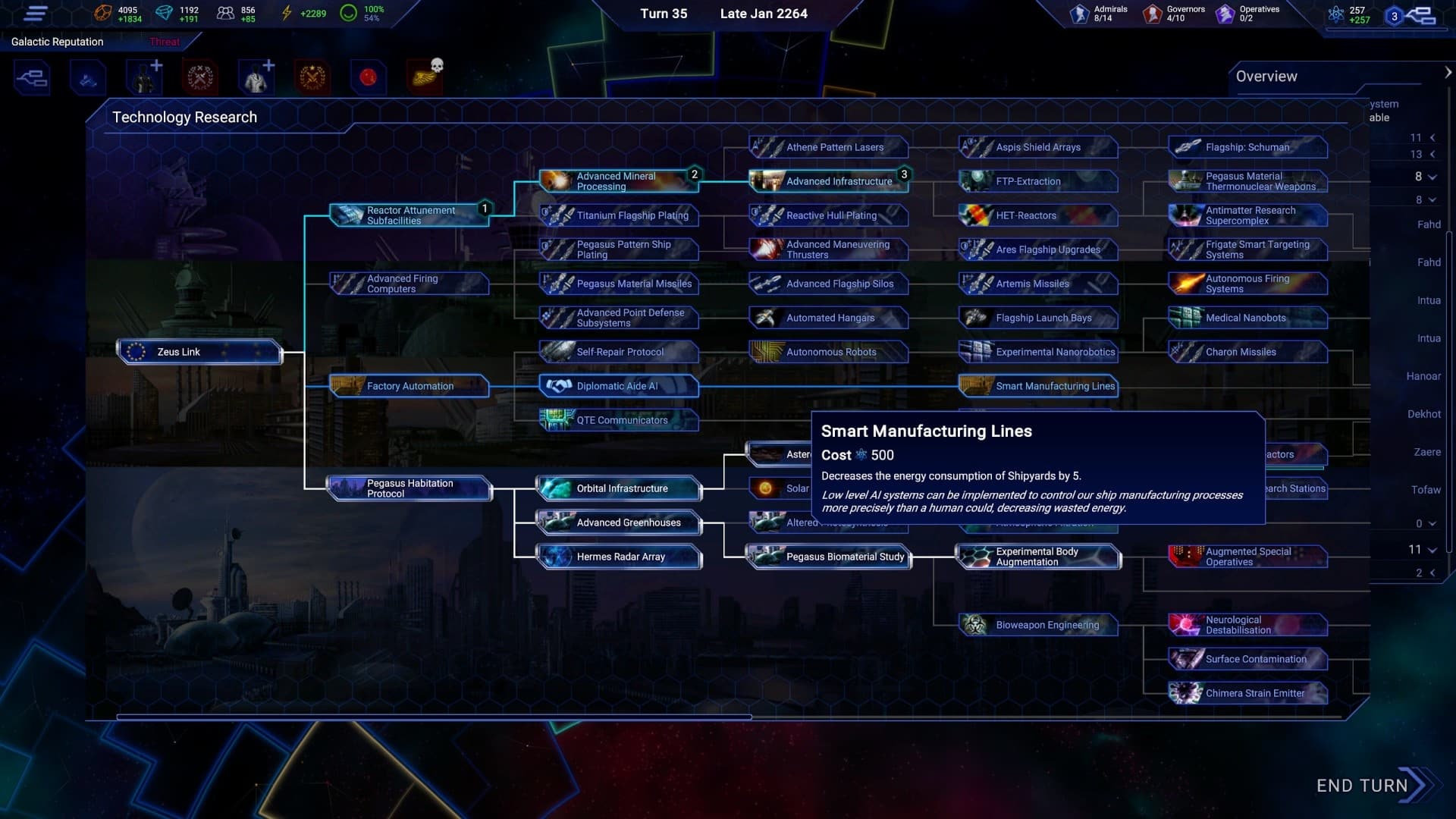
Construction projects (buildings or ships) take several turns to complete depending on the local infrastructure, the same applies to repairing fleets. Especially the latter is relevant even if there is no active enemy fleet in the area. Each star system builds up militia fleets, which, however, only offer a low level of defence and cannot be moved. However, they can still inflict considerable losses on a heavily damaged attack fleet.
Normal fleets, on the other hand, can move two hyperlanes per turn, and up to three fleets can be in one system. When attacked, one fleet fights after the other. It is therefore not possible to send several units into battle at the same time.
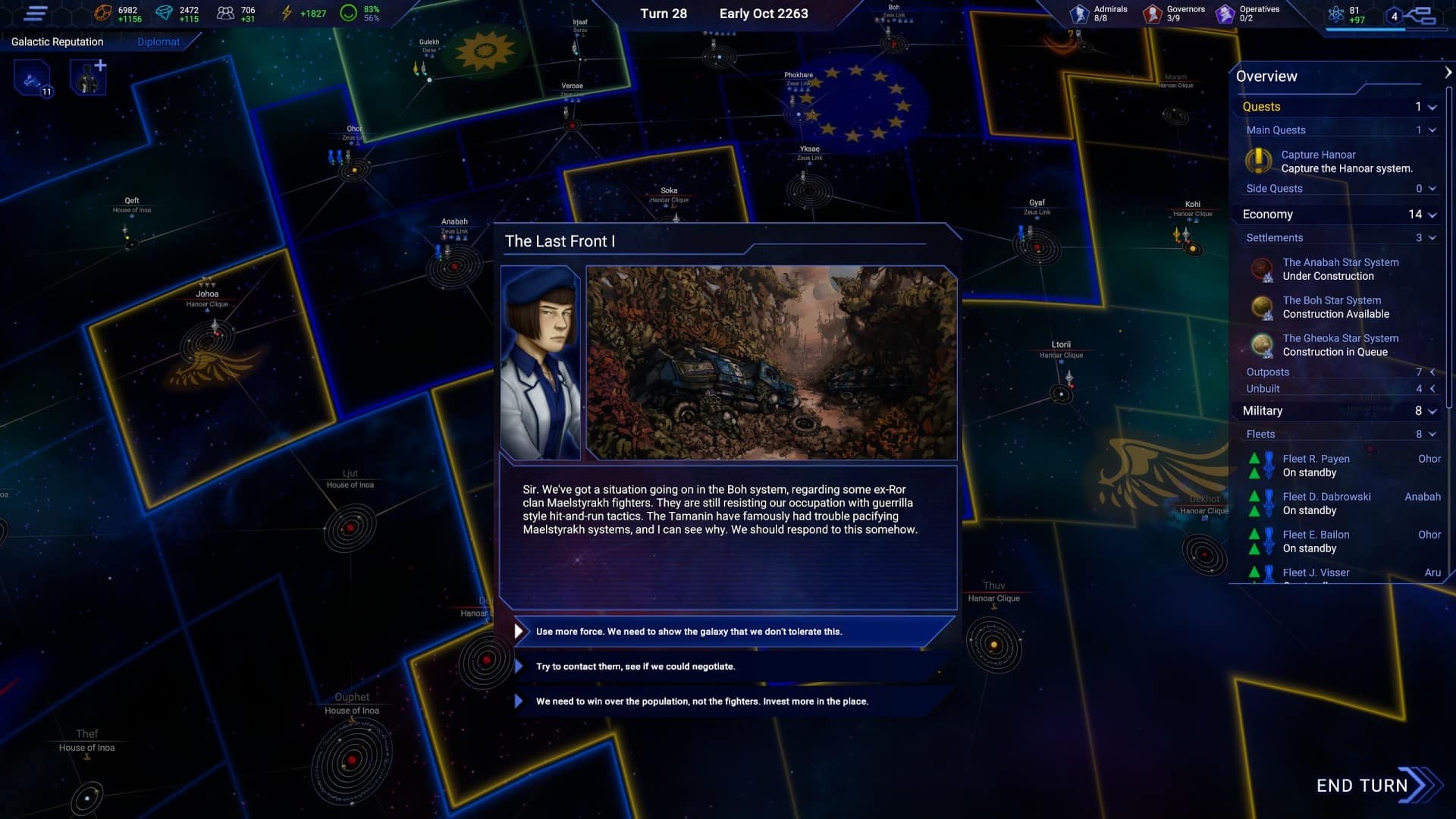
You decide the tactics, the rest is calculated
After all, The Pegasus Expedition has come up with a special feature: Before a battle, you determine which tactics your fleet should use. Do you want to attack the system with a large fleet or advance from several sides at the same time (the defenders are distributed among all the stars in the solar system at the start of the battle)?
The different tactics offer different offensive as well as defensive bonuses and shift the loss limit at which a fleet automatically retreats. So, if you want to take a system by hook or by crook, you can choose a correspondingly harsh combat tactic that cannot retreat, but results in greater losses.
Basically, this mechanic offers additional depth in the otherwise completely automatic battles, whose staging remains very rudimentary. In practice, however, the pure fleet strength almost always decides, at least that was the case in the demo.
This demo is too short!
And there we are at the crux of the whole matter. The Pegasus Expedition gives (in the demo available on Steam) a good insight into what kind of game it wants to be. But the playing time is too short to be able to say whether it will become that. Because a good global strategy game (here in space) needs many finely adjusted gears that mesh together.
If the balance is missing or whole mechanics don”t fit with the rest, it becomes lame and boring. But how The Pegasus Expedition really is in this respect cannot be judged with a prefabricated score.
Obviously, The Pegasus Expedition has everything it needs to be an interesting game. A solid setting, classic 4X elements and a unique selling point in terms of storyline. In addition, there is a large research tree and many diplomacy options that allow, for example, alliances, non-aggression pacts, free trade and research pacts. For fleets and planets, you can hire admirals and governors who bring different bonuses, and spies can also be recruited for special missions. But whether all of this will ultimately merge into a good strategy game remains to be seen.
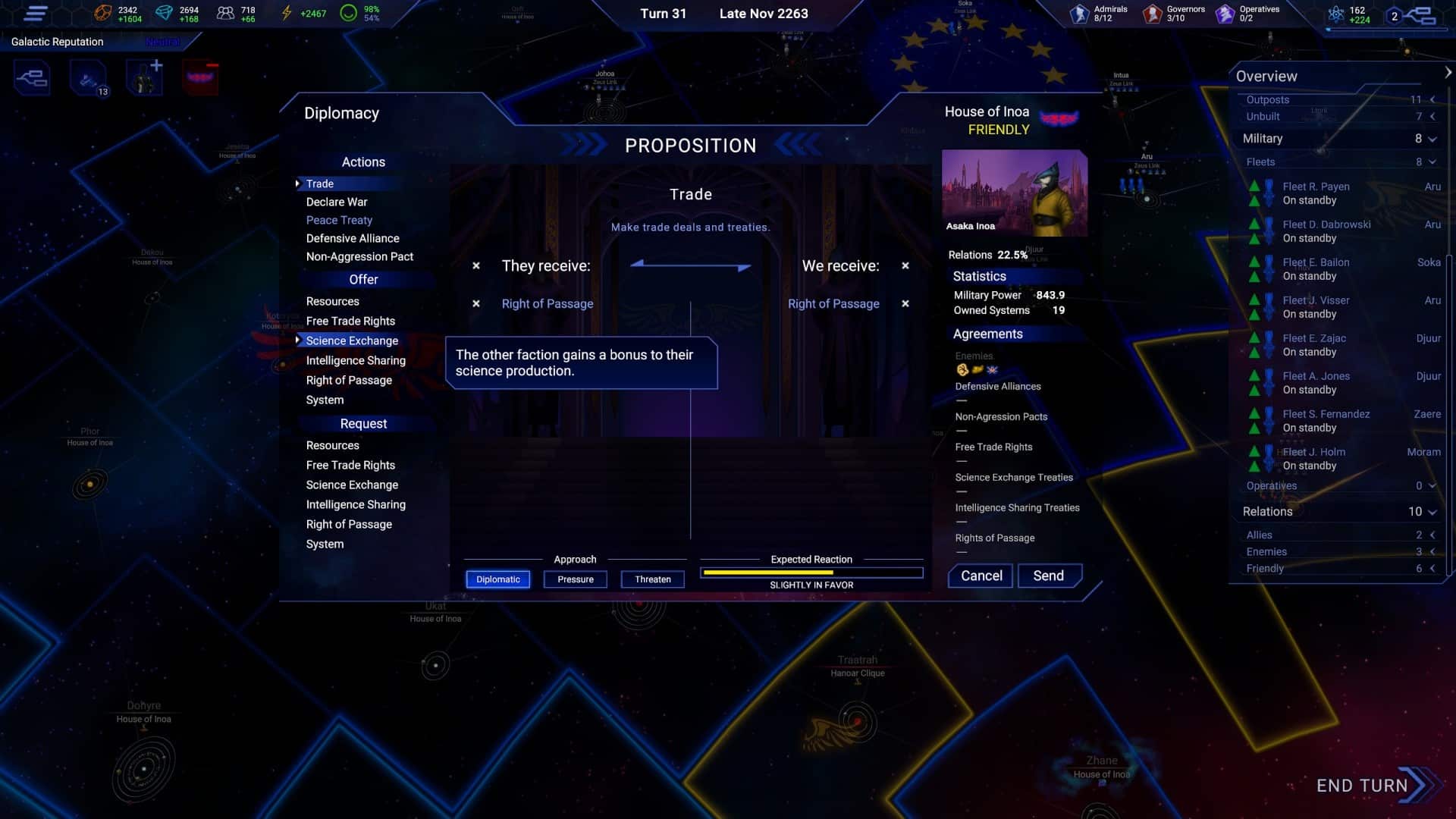
The budget is small
However, it is already apparent that The Pegasus Expedition will hardly play in the league of Stellaris. The staging, the graphic design and the scope of the game systems are a bit too weak for that. This is probably due to the low budget of the Finnish indie developer.
It would be all the more important for the story to be good. And the general world-building should not be neglected either. Many science fiction games have failed, among other things, because the generic space races are completely characterless and ultimately just coloured areas on the map, offering no immersion whatsoever.
So there are still some unanswered questions about The Pegasus Expedition. Potentially, however, you can expect an interesting little indie game on release in the second half of 2022, which could be well worth a look if the price is right.
Editor”s Verdict
The Pegasus Expedition has not convinced me yet. Basically, I like the idea of a campaign in the guise of a 4X game, but what I”ve seen of the universe and the story so far hasn”t really excited me yet. In the relatively short demo, the Finnish game exudes little esprit. So far, it doesn”t come close to the feeling of the endless expanses and possibilities of Stellaris or the charm of “Stargate Atlantis”.
But that is exactly what will be decisive in the end. The Pegasus Expedition must convince with its plot and world-building. Because the rest is nice, but not a hit. So for me it”s just a case of waiting, getting out the old DVDs and watching Sheppard, Dr. McKay and co. explore the Pegasus Galaxy with their Atlantis Expedition.

